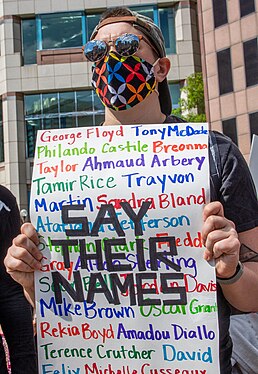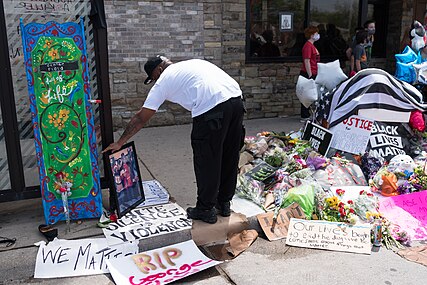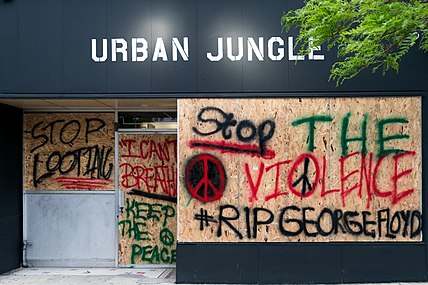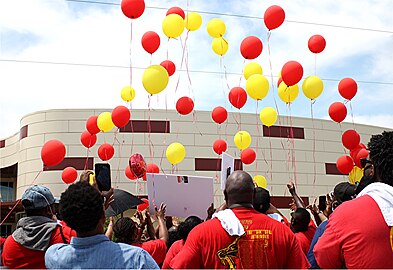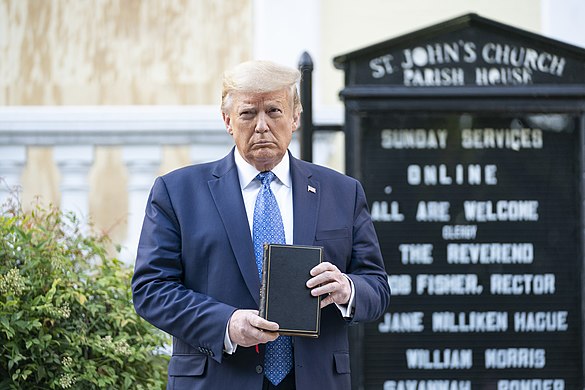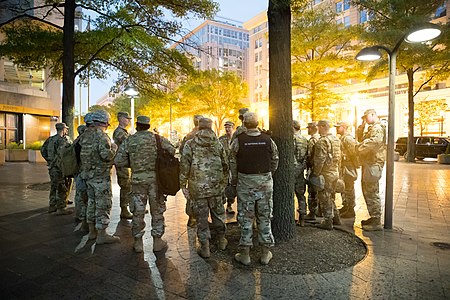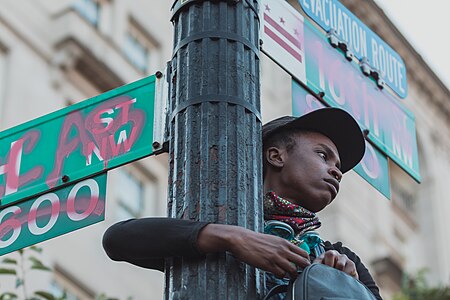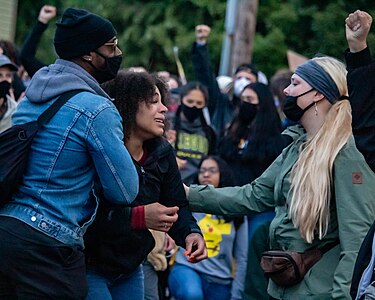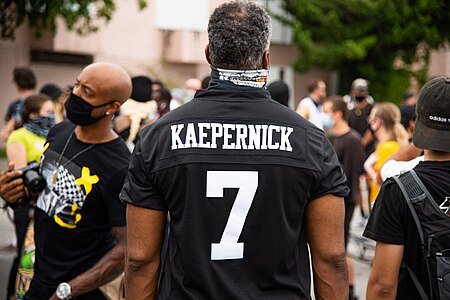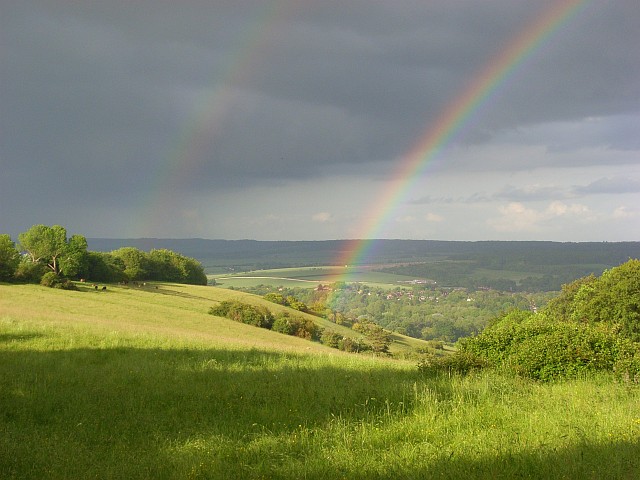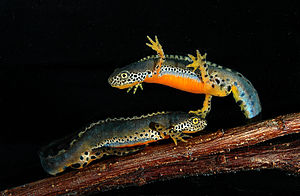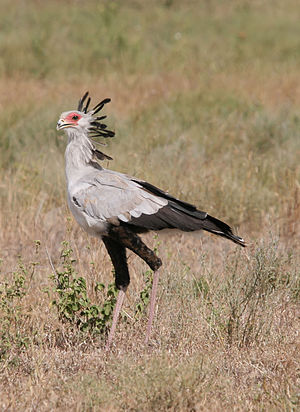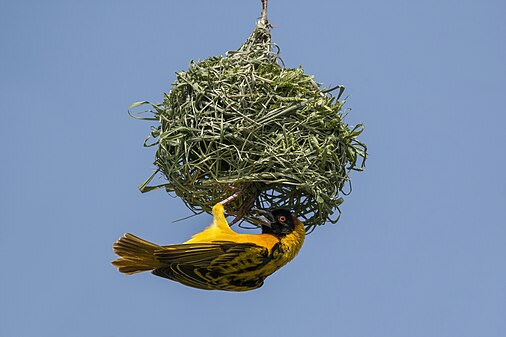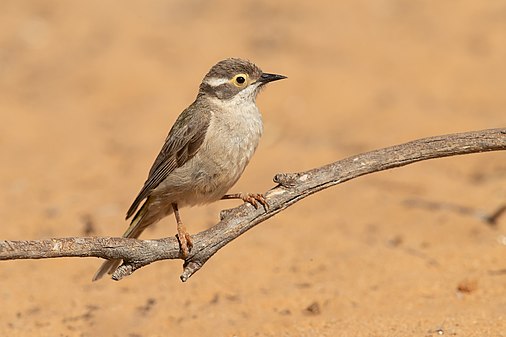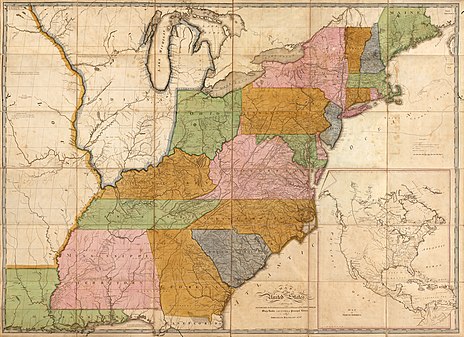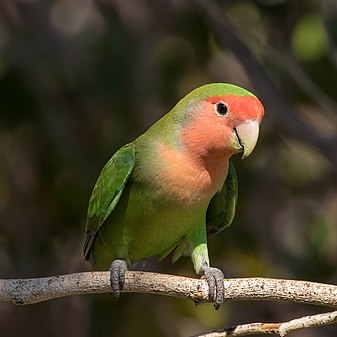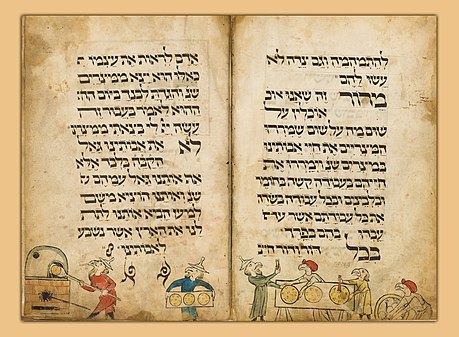Wikipedia:Wikipedia Signpost/Single/2020-06-28
The Wikipedia Library deploys "authentication-based access"
On 9 June 2020 The Wikipedia Library (TWL) announced the roll-out of "authentication-based access", a change that introduced two improvements to the platform:
Authentication-based access: Instead of having an individual username and password, access code, or other unique way of accessing each publisher, we will move to authentication-based access for most available resources. Users will simply log in to the Library Card platform where they will be able to access any authentication-configured content they are authorized for with a single click.
Library Bundle: We will also be making a set of resources available in a Library Bundle. These collections will not need any application from users: instead there will be an automated eligibility check in the software. Approximately 25,000 editors will be eligible for the Library Bundle, which will contain more than 60% of the library's content.
Under the new authentication-based access, EZproxy will be used for 30 of TWL's 60 partners, meaning individual log-ins have been disabled. 14 publishers are accessible through EZProxy to all users who meet the criteria (500+ edits, account created more than 6 months ago, 10+ edits over the last 30 days, and no active blocks on any Wikimedia project). Sources accessible to all qualifying users include the Edinburgh University Press, JSTOR, ProQuest, and various Oxford Reference-based resources.
WikiJournal of Medicine to be indexed in SCOPUS
The WikiJournal of Medicine was accepted into SCOPUS, an abstract and citation database, on 18 June 2020. The WikiJournal describes itself as "an ISSN-registered, peer reviewed, open access journal in medicine and biomedicine published free of charge." The concept of WikiJournals dates back to a 2004 proposal, but no formal journal existed until the WikiJournal of Medicine in 2014. Several other journals have since been founded. The journal first applied to SCOPUS in March 2017, but the application was rejected as premature. A second application in early 2020 was recently accepted by the Content Selection & Advisory Board which called the journal an "embryonic journal with global potential".
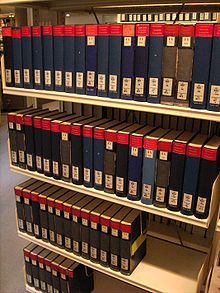
German Wikisource wraps up 15-year proofreading project
The German Wikisource community recently completed its online edition of Allgemeine Deutsche Biographie, one of the most important biographical reference works in the German language, comprising around 26,345 articles. The work on this project consisted of correcting and proofreading OCR text of scans published elsewhere, under a four-eyes principle as mandated by the community's quality standards. Work on the ADB actually predates the existence of German Wikisource as a separate language project, having been started before it split out of the multilingual version at wikisource.org (initially sources.wikipedia.org) in 2005. Still, it was completed much faster than the publication of the original print version, which took 37 years from 1875 to 1912. In the meantime, a government-funded project also published a digital text edition. However, the archivist and Wikisource community member Klaus Graf argues that the quality of the Wikisource version is higher.
The ADB's successor project, the Neue Deutsche Biographie ("New German Biography") published its first volume ("Aachen – Beheim") in 1953 and is currently expected to be completed in 2023. Back in 2010, the German Wikisource already also created a project page for the NDB; however, under current copyright laws it would likely have to wait until well into the 22nd century for the entire content to become available under public domain.
Brief notes
- The Wiki Education Foundation: Based on social media posts and tips from employees to The Signpost, the Wiki Education Foundation is expected to announce that about half their staff have been laid off due to insufficient fund raising. The Foundation is not part of the WMF, but runs programs in the US and Canada helping university Wikipedia editing classes. We expect to post the official announcement next month.
- Milestones: Wikimedia Sverige reports that the Swedish Wikipedia has reached 50,000 biographies of women, with the milestone article Sigrid de Verdier written by FBQ. About 21.15% of the 236,148 biographies on SVwiki are on women. This compares to 318,844 bios (18.50%) on women out of 1,723,693 total bios on ENwiki. The Spanish Wikipedia, with 84,777 (21.27%) women's bios and Japanese Wikipedia with 70,554 (21.19%) are among the leaders in the larger language versions according to the June 23, 2020 Gender by language report.
- The Wikimedia Foundation's 17th birthday was on June 20.[citation needed]
- Bot scrambles world geography: Google searches are returning English language geography articles bot translated to ceb.wiki. See the proposal on meta to nofollow the bot articles.

Current logo of MediaWiki, regarded as outdated by some - The Wikimedia Foundation's Community Development team launched an experimental series of online meetups called "Wikimedia Clinics" "where any active Wikimedian is welcome to attend and ask questions or ask for advice about whatever Wikimedia-related goal or problem they're working on." Digests of past calls and future dates are available at meta:Wikimedia Clinics.
- A discussion has been started to find a new logo for MediaWiki.
- Big oops Posted to wikitech-l: a server mis-configuration on June 26 (evening of June 25 in North America) sent session cookies to other users and
Some users reported that they saw the site as if they were logged in as someone else
. WMF reset all login sessions to prevent use of the cookies, and statedThere are several layers of protection against something like this happening, and we don't yet know how all of them failed
... and in a followup,Users reportedly had full access to the accounts of other users.
This open letter was originally published on June 23 on Meta at Community open letter on renaming. As of June 28 it has been signed by 34 Wikimedia affiliates and 350 individual Wikimedians. See this interview with some of the open letter's signers. -S
Open letter on renaming
Volunteers have built up the good name of Wikipedia as an independent, community-driven resource for 20 years. The Wikimedia movement projects, including Wikipedia, thrive on decentralization and consensus. Clear distinctions among the Wikimedia Foundation, affiliates, and individual contributors are essential. Any change that affects this balance demands the informed consent and collaboration of the communities. Therefore, it is of great concern to see "Wikipedia" presented for the name of the organization and movement despite widespread community dissatisfaction.
We, the undersigned, request an immediate pause to renaming activities by the Wikimedia Foundation, due to process shortcomings of the 2030 Movement Brand Project.
- Assessment of risks during project planning and concept development:[1]
- High cost for undemonstrated benefit. Renaming constitutes a disruptive change, and does not show a clear link to the promised outcomes.[2] Wikimedia affiliates are concerned about the hazards of using “Wikipedia” outside of a project context and have not found adequate assurances and support.[3]
- High risks to community identity. These have been overlooked in evaluating naming options. In 2015, the Wikimedia Foundation noted that "Wikimedia is a strongly-held community identity. Name changes have implications for community cohesion and participation."[4] However, it failed to carry these concerns through the process and the surveys.
- Respect and inclusion of Wikimedia communities:
- Miscommunication and confusion. Unclear assumptions by the Wikimedia Foundation have led to a lack of confidence in the brand process.[5][6][7]
- Problematic evaluation and summary of feedback. The choice of metrics, particularly in the August 2019 community review, have put the premise and legitimacy of the process into question.[8][9][10][11]
- Neglecting the views of Wikimedia communities. Formal and informal channels, including Requests for Comments[12] and straw polls,[13][14] indicated clear problems with the process. The current brand survey focuses on the very name for the Wikimedia Foundation that was overwhelmingly opposed in these community consultations.
Therefore, we ask the Board of Trustees and the Wikimedia Foundation to pause or stop renaming activities.
Every major activity in the Wikimedia movement has been delayed or postponed this year – the global Wikimania conference, Wikimedia Foundation board elections, Wikimedia Summit and Strategy working groups. It is appropriate to treat renaming with the same level of care and concern. Any future work should be restarted only in a way that supports equitable decision-making among all stakeholders.[15]
References
- ^ 2030 movement brand project - timeline
- ^ WMF, Leading with Wikimedia proposal 2019-02 and Wolff Olins research
- ^ Comments on the rebranding strategy, from the chairs of five Wikimedia Affiliates
- ^ Slides: November 2015 documents presented to the Board from the branding team, (2015-11). In a video call with affiliates on 2020-06-20, Zack McCune (WMF Director of Brand) concurred that these criteria were absent and should be somehow incorporated into the proceedings.
- ^ Requests for comment - Should the Foundation call itself Wikipedia - "I wanted to add a comment here to apologize for the metrics presented in the 2030 research and planning community review results" - Heather Walls, (WMF Chief Creative Officer) (2020-02-17)
- ^ 2030 movement brand project - Executive statement - "I take responsibility that we have not managed to bring all of you along on this journey in the way we hoped and intended, or clearly communicated the Foundation’s intentions. I deeply regret causing stress and tension that have increased rifts between the Foundation and many community members." - Heather Walls (2020-06-18)
- ^ Board Statement on Branding (2020-06-22) from acting board chair Natalia Tymkiv - "I am truly sorry for all the frustration this whole situation has caused to volunteers, who have engaged in discussions expressing their concerns, and to the staff, who have been working and not really sure if that is really the direction the Board is prepared to seriously consider, or if it is just an exercise on our part."
- ^ Flawed indicator for ‘informed people’, 2019-02 - "The community response criteria proposes dividing by the number of people who have been informed. That appears to be a problem. I see no way you can determine how many people have been informed via mailing list or informed via VillagePump postings, unless someone has psychic powers."
- ^ Brands - Community Review # Informed people "0.6% of informed oppose (57 users oppose of ~9,000 reached)" (2019-09-06)
- ^ Brands - Community Review - Results # Response KPIs - adjusted to "40% of community members oppose"
- ^ Brands - Community Review - Results # The metrics used here are troubling- "The metrics used in this consultation were meant to gauge response not to offer a score for the proposal or stand in for a vote of any kind. This was because the proposal was conceptual not explicit." Zack McCune
- ^ RfC: Should the Foundation call itself Wikipedia As of 2020-06-22: 41 in support and 468 against for the question “Is it acceptable for the Foundation to use the name Wikipedia to refer to itself?”
- ^ Brands - Community feedback and straw poll
- ^ Talk: Brands - Community Review - Brainstorm
- ^ 2030 Strategy recommendations: ensure equity in decision making and coordinating across stakeholders
George Floyd was killed in Minneapolis on the night of May 25, 2020. His death was ruled a homicide by the Hennepin County Medical Examiner. Floyd was in police custody at the time of his death. Videos and this photo show a police officer kneeling on Floyd's neck at about the time of his death. Four officers have been charged in the death. The Signpost is sorry that we can't publish the "fair use image" linked above because it is not freely licensed for publication in The Signpost. But the protests and related events following Floyd's death were photographed and the photos uploaded to Wikimedia Commons many thousands of times. We present a sample of those photos.
People often say that "photographs don't lie," but every photograph has a point-of-view. Every photographer has a point-of-view, as much as they might try to hide it. Every editor who needs to select photos for The Signpost has a point-of-view. As much as we try to be neutral in this photo essay, the best we can do is to try to present many different points-of-view. There are no neutral positions in many of the issues raised by the death of George Floyd.
- Protestor, Columbus, Ohio,
May 30 - Sign, New York, May 28
- Protestor with sign, Minneapolis, May 26
- Protest, Minneapolis, May 26
- Memorial, Minneapolis, May 27
- Fire, Minneapolis, May 28
- Protest, Minneapolis, May 28
- Store, Minneapolis, May 29
- Memorial, Minneapolis, June 5
- Mural, Berlin, May 30
- Protestor with sign, Columbus, Ohio, June 2
Thousands of protests against police violence were held throughout the world. Most were peaceful, some were not. The National Guard was deployed in some US states and in Washington, D.C. We can only hope that people do not blame all police, all protesters, or all National Guardsmen for the violence and destruction that took place.
- Map of protests in the contiguous U.S. states and adjacent parts of Canada
- Protest in Amsterdam
- Protest, Denver
- Protest, Seattle, June 3
- Columbus, Ohio, May 30
- Protests, Los Angeles, June 6
- Protestor, Oakland, May 29
- Protestor, Columbus, Ohio, June 1
- Protestor, Los Angeles, June 6
The problem of police violence, especially the problem of police violence against Black people, will have to be dealt with by politicians by political means. In a democracy "politics" should not be a dirty word.
- Jack Yates High School, Houston, May 30
- White House video, June 1
- Indiana National Guard, Washington, D.C. June 3
- The Capitol, Washington, D.C., June 4
- Coffin, Baltimore, June 6
- Black Lives Matter The White House, June 7
- Sign, San Jose, June 3
- Arrest, New York, May 30
- Police, Springfield, Oregon, June 6
- Protester, Washington, DC, June 2
- California National Guard, Los Angeles, June 6
- Police, Minneapolis, May 28
- Protesters, Springfield, Oregon, June 6
- Arrest, Columbus, Ohio, May 30
Why does any of this matter? Black lives matter. Of course all lives matter, but Black people are those being killed on a regular basis by police in America. The living matter too. Our lives going forward will all be better if all the people involved in these protests can respect all the other people involved.
- Soldier, Atlanta, June 2
- Protest, Miami, June 7
- Protest, Brooklyn Bridge, June 9
- Graffiti, Harlem, New York, June 10
- Protesters, June 11, Minneapolis
- 2C2K Photography
- Andrew
- Jules Antonio
- Anonymous Indianapolis Social Worker
- Daniel Arauz
- BAMCorp
- Elvert Barnes
- Paul Becker (Becker1999)
- Senator Cory Booker
- Maj. William Carraway, Georgia Army National Guard
- Shealah Craighead, Chief Official White House Photographer
- cspirtos
- Chad Davis
- dsgetch
- Fibonacci Blue
- geoffalexander4
- Hungryogrephotos
- Leonhard Lenz
- Mayopotato
- Brett Morrison
- Phoebe
- Rhododendrites
- Staff Sgt. Jeremiah Runser, US Army
- mark sebastian
- Mike Shaheen
- Lorie Shaull
- SounderBruce
- Stateriotismx
- tedeytan
- Vasanthtcs
- The White House videographer
- Stan Wiechers
- Travis Wise
- yashmori
Are Wikipedians silencing perspectives outside the community accepted point of view?
How Wikipedia Became a Battleground for Racial Justice, in Slate by Stephen Harrison examines the inner workings of knowledge production in English Wikipedia, using his usual combination of the analysis of talk page debates, policies, the evolution of articles, and editor interviews.
He describes the production process as "part collaboration and part combat", and focuses on deletion debates as an expression of practices and policies that discourage positive change. The deletion nominations of the Black Lives Matter Meta-Wiki page and the article Anna Gifty Opoku-Agyeman are closely examined, including the intervention of individual administrators who may have misapplied policy to prevent changes in controversial areas. He writes:
[Wikipedia's] rules-based view of neutrality may not be as neutral as it seems. "Wikipedia contributors have begun operationalizing a definition of neutrality in order to silence perspectives outside the community accepted point-of-view," [social scientist Jackie] Koerner said in an email. Take the case of Black Birders Week, a series of online events to celebrate black naturalists and birders. This initiative was conceived in response to last month’s racially charged incident in Central Park. In connection with Black Birders Week, Wikipedia editors created new articles about black bird-watching leaders like Anna Gifty Opoku-Agyeman, the Ghanaian-born American activist who co-founded the movement. After Opoku-Agyeman's Wikipedia page went up, so-called deletionist editors moved to have it removed. The deletionist editors argued that even though Opoku-Agyeman had been written up in places like The New York Times and The Wall Street Journal, she was only given passing mention by those sources and therefore was not sufficiently “notable” to merit her own Wikipedia page. At the end of the day, more editors voted to keep the article for Opoku-Agyeman, whose page remains online. But the incident itself shows how the notion of neutrality can be weaponized by some factions to keep certain knowledge off of the encyclopedia.
The Signpost notes that Wikipedia:Articles for deletion/Anna Gifty Opoku-Agyeman was plagued by sockpuppets - starting with the nominator. Discounting the socks, the outcome of the deletion debate was 32 keep versus 4 delete !votes. One editor preferred redirection.–B
Ryan Merkley talks to the Lawfare Podcast for fifty-one minutes
This podcast episode is the third part of three discussing the influence of disinformation in what they describe as an often-unreliable internet. Myopically insisting that they "are a disinformation podcast" they suggest that Wikipedia is vulnerable to disinformation. Introduced as the Chief of Staff to the WMF Office of the Executive Director, Ryan Merkley handles himself well; explaining that volunteers, not WMF employees, control content on Wikipedia and that a combination of pending changes, bots, and human editors prevent untruths from spreading on Wikipedia. Merkely adroitly points out that the nature of the semantic wiki, the openness of talk pages and history tabs insulate Wikipedia.
He states that Wikipedia's appearance of reliability is "trust that community has earned" but points out that Wikipedia looks good in part because so much other media looks bad, saying "attacks on traditional journalism that have reduced trust in media, behaviors of media not in line with some of the traditional values of what media should do, like fact-checking" have eroded once reliable sources, causing second-order effects here because we need reliable sources, causing third-order effects because outlets like Google use Wikipedia in information they republish. Merkely admits that against a state-sanctioned disinformation campaign, Wikipedia, like any other social media outlet, would be helpless. The interviewer asks, with concern to the "homogeneity in the community of editors", how the WMF's upcoming universal code of conduct will tamp down harassment. Merkley agrees that some in the audience may have heard that Wikipedia is unfriendly to women and persons of color asserting that "parts of our communities have been hostile" but that he's "really proud" of the Board of Trustees' work on the Code of Conduct and that the code is meant to create a baseline of enforcement upon which communities can improve. –CT
Facebook's version of Knowledge Panel is being tested
- Facebook tests Wikipedia-powered information panels, similar to Google, in its search results in TechCrunch.
Still in the testing phase, Facebook's new search product allows readers to stay on their platform while reading basic information from Wikipedia and other sources, similar to Google's Knowledge Panel. TechCrunch is not impressed, calling the product "fairly hit or miss". Their examples include a "hit" – searching for "joker" will call up information on the movie – but searching for "parasite" does not give information on the Oscar-winning Best Picture of 2019. In another example, searching for "Donald Trump" calls up useful information, but searching for members of his cabinet does not always work.
Social Media Today broke the story with Facebook Adds Wikipedia Knowledge Boxes in Search Results.
In brief
- Join the Science Gallery in exploring the ‘erased voices’ of Wikipedia in Silicon Republic invites us to a June 11 "Wikithon" that was all about diversity. Moderated by Shubhangi Karmakar, the first disabled QTIPOC (queer, transgender and intersex people of colour) youth advisor at Science Gallery Dublin, the program hoped to document "notable yet overlooked BIPOC" (black, indigenous and people of colour) "in STEM and media."
- 15 Wikipedia Pages About Historical Queer Actors, Writers, And Figures You'll Want To Read Right Now in BuzzFeed started by asking readers for their own lists. The final list included Marlene Dietrich, Josephine Baker, Colette, Tallulah Bankhead, Bayard Rustin, Sister Rosetta Tharpe and nine others.
- Bayard Rustin was a key figure in the civil rights and gay rights movements published by The A.V. Club's Wiki Wormhole series. Bayard, despite being openly gay, was a major figure in the Civil Rights movement in the 1960s. He pioneered the Freedom Riders protests starting in the 1940s. He mentored Martin Luther King, Jr. on the fine points of nonviolent protests. He was the main organizer of the 1963 March on Washington for Jobs and Freedom, technically under the supervision of A. Phillip Randolph, where MLK gave his famous "I Have a Dream" speech. Starting in the early 1980s, he campaigned for gay rights.
- Wikipedia founder: 'This contact tracing app situation in the UK is the height of incompetence' in The Telegraph reports how Jimmy Wales has told the UK government that they have wasted millions of pounds writing a COVID-19 contact tracing app that would have invaded the privacy of the people it was supposed to have protected. The app could be written using off-the-shelf software to maintain privacy. Jimmy said that he'd do the job within two weeks "at zero cost to the taxpayers" if the government agreed.
- 'A woman': Wikipedia page records trials and achievements of invisible women in France 24 shows how French headline writers discriminate against women. For the original French Wikipedia article, translated into English, see this month's Humour article.
- Autonomous Zone in Seattle and on Wikipedia: Referring to CHAZ, Fast Company wrote Seattle's 'Capitol Hill Autonomous Zone' already has a Wikipedia page, but it might not last on June 10. Articles in the mainstream press and a presidential tweet effectively derailed the deletion debate. As of June 27, the zone appears to be in the process of closing down, but several hundred protestors remain according to The Wall Street Journal (paywalled).
- Saskatchewan doctor keeps COVID-19 Wikipedia info accurate with encyclopedic dedication from the CBC. Doc James is from Saskatchewan and practices medicine in British Columbia.
- "Salacious and false rumors from unreliable sources": that is a lawyer for Zion Williamson talking about Wikipedia, according to the News & Observer.
- Wikipedia finally designates Taiwan as 'country' according to Taiwan News in Taiwan. Tribun News in Indonesia [1] and Masato Kajimoto, a journalism academic affiliated with the University of Hong Kong and Stony Brook University, also noted the change [2].
Odd bits
- CBC radio has a weekly program on Saturdays, which started June 15 about an on-air Newfoundland-Labrador editathon, supported by Memorial University, a Wikipage and dashboard.
- The Mattoon (Illinois) Journal-Gazette Times-Courier gives the The 24 most unusual town names in Illinois. They documented 15 of the names with Wikipedia articles:Goofy Ridge, Normal, Birds, Oblong, Beardstown, Muddy, Sandwich, Ransom, Cairo (pronounced care-o, not kay-ro), Wyoming, Golf, Mechanicsburg, Benld, Bone Gap, and Mineral. Nine were not documented by Wikipedia articles: Standard, Boody, Hometown, Time, Royal, Equality, Industry, Joy, and Lost Nation. Somehow the newspaper missed Chicken Bristle which is just 30 miles north of Mattoon via Tuscola.
Top story: WMF branding
On June 16, the Wikimedia Foundation (WMF) hosted a YouTube livestream where they officially unveiled three rebranding proposals, each of which would change the name of the Wikimedia Foundation to one of the following:
- Wikipedia Network Trust
- Wikipedia Organization
- Wikipedia Foundation
The WMF's plan to rebrand and change their name to the "Wikipedia Foundation" has been met with dissent across many WMF-owned sites. Some users have accused the WMF of pushing this change through while ignoring community opposition to the rebranding activities. The WMF has responded to these complaints by issuing statements from the Board that aim to provide more clarity on the rebranding process, as well as by posting a survey asking for community opinions on the rebranding proposals. Notable pages where the community has been discussing this proposed change include:
- The English Wikipedia’s recently created WMF village pump.
- The talk page for the WMF-created page about the rebranding has been a popular place for discussion for a while.
- The community-created RfC mentioned in an earlier edition of the Discussion Report has continued to attract voters; opposers of the name change currently outnumber supporters by a margin of around 10 to 1.
- There's also a straw poll asking whether users agree or disagree with each of the following the statements:
- Any survey about naming proposals should include the status quo as an option, with the same prominence as proposed new names.
- The Wikimedia Foundation should change its name to one of the 3 Foundation-proposed names. (The three Foundation-proposed names are "Wikipedia Network Trust" [proposal 1], "Wikipedia Organization" [proposal 2], and "Wikipedia Foundation" [proposal 3].)
- The Wikimedia Movement should change its name to one of the 3 Foundation-proposed names. (The three Foundation-proposed names are "Wikipedia Network" [proposal 1], "Wikipedia Movement" [proposal 2], and "Wiki" [proposal 3].)
- The first statement currently has unanimous support, while the other two are opposed by the vast majority of voters.
- m:Community open letter on renaming, created to "request an immediate pause to renaming activities by the Wikimedia Foundation, due to process shortcomings of the 2030 Movement Brand Project." As of the time of writing, the petition has been signed by over 330 users and 34 affiliate groups.
- Jimbo Wales' talk page, where Jimbo commented on the branding project
In brief
- On the reliable sources noticeboard, an RfC is going on to discuss whether or not Fox News should be considered a reliable source. While informal discussions about Fox News' reliability have occurred in the recent past, a formal RfC has not taken place since 2010. The community is divided as to whether news reporting from Fox News (as opposed to pundits like Sean Hannity) can be counted on to be accurate.
Follow-ups
- Consensus at Talk:Taiwan determined that the first sentence of the article on Taiwan should describe it as a "country" rather than a "state". This change was also reported by international media (for details, see this issue's In the media).
- The left sidebar RfC has been closed, with consensus in favor of:
- Reorganizing some links in the sidebar
- Removing the "Wikipedia store" and "Featured content" links
- Adding an introduction to contributing page, though there was no consensus over which such page to add; a follow-up RfC has been posted to the village pump.
- The remaining proposals in the April Fools RfC have been closed. Consensus was reached to ban jokes on article talk and help talk pages, and there was no consensus to ban joke deletion nominations (the closer noted a possible rough consensus to place new restrictions on joke XfDs, but this would require a new RfC).
Featured articles
Twenty-nine featured articles were promoted this month.
- The 1916 Texas hurricane (nominated by TheAustinMan) was an intense and quick-moving tropical cyclone that caused widespread damage in Jamaica and South Texas in August 1916. A Category 4 hurricane upon landfall in Texas, it was the strongest tropical cyclone to strike the United States in three decades. Throughout its eight-day trek across the Caribbean Sea and Gulf of Mexico, the hurricane caused 37 fatalities and inflicted $11.8 million in damage.
- The 2001 UEFA Cup Final (nominated by NapHit) was a football match between Liverpool of England and Alavés of Spain on 16 May 2001 at the Westfalenstadion in Dortmund, Germany. The showpiece event was the final match of the 2000–01 edition of Europe's secondary cup competition, the UEFA Cup. Watched by a crowd of 48,050, Liverpool won on the golden goal rule, defeating Alavés 5–4. The victory meant Liverpool completed a treble consisting of the Football League Cup, FA Cup and UEFA Cup.
- The 2009 Women's Cricket World Cup Final (nominated by Harrias) was a Women's One Day International cricket match between the England women's cricket team and the New Zealand women's national cricket team, played on 22 March 2009 at the North Sydney Oval in Australia. It was the culmination of the 2009 Women's Cricket World Cup, the ninth edition of the tournament. England won the final by four wickets, clinching their third World Cup title and their first outside England. It was the second time that the two teams had met at this stage of a World Cup – England won their previous final contest in 1993.
- The 2017 World Snooker Championship (nominated by Lee Vilenski) was a professional snooker tournament that took place from 15 April to 1 May 2017 at the Crucible Theatre in Sheffield, England. It was the 19th and final ranking event of the 2016–17 season, following the China Open. It was the 41st consecutive year that the World Snooker Championship had been held at the Crucible. The winner of the title was defending champion and world number one Mark Selby, who defeated John Higgins 18–15 in the final despite having fallen 4–10 behind in the second session of the match
- The alpine newt (nominated by Tylototriton) (Ichthyosaura alpestris) is a species of newt native to continental Europe and introduced to Great Britain and New Zealand. Adults measure 7–12 cm (2.8–4.7 in) and are usually dark grey to blue on the back and sides, with an orange belly and throat. Males are more conspicuously coloured than the drab females, especially during breeding season.
- The Battle of the Bagradas River (nominated by Gog the Mild) (the ancient name of the Medjerda), also known as the Battle of Tunis, was a victory by a Carthaginian army led by Xanthippus over a Roman army led by Marcus Atilius Regulus in the spring of 255 BC, nine years into the First Punic War.
- Lionel Matthews (nominated by Peacemaker67) was an Australian Army officer in World War II. He was posthumously awarded the George Cross, the highest award for heroism or courage not in the face of the enemy, that could be awarded to a member of the Australian armed forces at the time.
- Stucky (nominated by Morgan695) (also Steve/Bucky or Bucky/Steve) is a term used to denote the pairing of Steve Rogers (Captain America) and James Buchanan "Bucky" Barnes (the Winter Soldier), fictional characters appearing in comic books and related media produced by Marvel Comics.
- The 1981 UEFA Cup Final (nominated by The Rambling Man) was an association football match played over two legs between AZ '67 of the Netherlands and Ipswich Town of England. The first leg was played at Portman Road, Ipswich, on 6 May 1981 and the second leg was played on 20 May 1981 at the Olympic Stadium, Amsterdam. It was the final of the 1980–81 season of European cup competition, the UEFA Cup. Both Ipswich and AZ '67 were appearing in their first European cup final. Watched by a crowd of 27,532 at Portman Road, Ipswich defeated AZ '67 5–4 on aggregate, winning their first and, as of 2020, only European trophy.
- Dementia with Lewy bodies (DLB) (nominated by SandyGeorgia and Colin) is a type of dementia accompanied by changes in sleep, behavior, cognition, movement, and automatic bodily functions. Memory loss is not always an early symptom. The disease worsens over time and is usually diagnosed when cognitive decline interferes with normal daily functioning. Together with Parkinson's disease dementia, DLB is one of the two Lewy body dementias. It is a common form of dementia, but the number of people affected is not known accurately and many diagnoses are missed. The disease was first described by Kenji Kosaka in 1976. Most people with DLB do not have affected family members, although occasionally DLB runs in a family. The exact cause is unknown, and it typically begins after the age of fifty and people with the disease live about eight years after diagnosis. There is no cure or medication to stop the disease from progressing, and people in the latter stages of DLB may be unable to care for themselves.
- Sir William de Cantilupe was murdered (nominated by Serial Number 54129) by members of his household in Scotton, Lincolnshire, in March 1375. The de Cantilupe family was a long-established and influential one in the county, traditionally providing royal officials to the crown both in the central government and at the local level. Among William de Cantilupe's ancestors were royal councillors, bodyguards and, distantly, Saint Thomas de Cantilupe.
- The Silesian Wars (nominated by Bryanrutherford0) were three wars fought in the mid-18th century between Prussia (under King Frederick the Great) and Austria (under Archduchess Maria Theresa) for control of the Central European region of Silesia (now in south-western Poland). The First (1740–1742) and Second (1744–1745) Silesian Wars formed parts of the wider War of the Austrian Succession, in which Prussia acted as one member of a coalition seeking territorial gain at Austria's expense. The Third Silesian War (1756–1763) was one theatre of the global Seven Years' War, in which Austria in turn led a coalition of powers aiming to seize Prussian territory. All three wars are generally considered to have ended in Prussian victories, and Prussia emerged from the Silesian Wars as a new European great power and the leading state of Protestant Germany, while Catholic Austria's defeat by a lesser German power significantly damaged the House of Habsburg's prestige.
- Mount Takahe (nominated by Jo-Jo Eumerus) is a 3,460-metre-high (11,350 ft) snow-covered shield volcano in Marie Byrd Land, Antarctica, 200 kilometres (120 mi) from the Amundsen Sea. It is a c. 30-kilometre-wide (19 mi) mountain with parasitic vents and a caldera up to 8 kilometres (5 mi) wide. Mount Takahe's last eruption occurred about 7,600 years ago; there is no present-day activity.
- The Tweed Courthouse (nominated by Epicgenius) officially known as the Old New York County Courthouse, is a historic courthouse building at 52 Chambers Street in the Civic Center neighborhood of Manhattan in New York City. It was built in the Italianate style, with Romanesque Revival interiors, under the leadership of the corrupt William M. "Boss" Tweed, whose Tammany Hall political machine controlled the city and state governments when the courthouse was built. The Tweed Courthouse served as a judicial building for New York County, a county of New York State that is coextensive with the New York City borough of Manhattan. It is the second-oldest city government building in Manhattan, after City Hall.
- The Battle of Panormus (nominated by Gog the Mild) was fought in Sicily in 250 BC during the First Punic War between a Roman army led by Lucius Caecilius Metellus and a Carthaginian force led by Hasdrubal. The Roman force of two legions defending the city of Panormus defeated the much larger Carthaginian army of 30,000 men and between 60 and 142 war elephants.
- Henry IV (nominated by Borsoka) was Holy Roman Emperor from 1084 to 1105, King of Germany from 1054 to 1105, King of Italy and Burgundy from 1056 to 1105, and Duke of Bavaria from 1052 to 1054.
- The Los Angeles Illustrated Daily News (nominated by Wehwalt) was a newspaper published from 1923 to 1954. It was operated through most of its existence by Manchester Boddy.
- Colonel James P. Hagerstrom (nominated by HueSatLum) was a fighter ace of both the United States Army Air Forces (USAAF) in World War II and the U.S. Air Force (USAF) in the Korean War. With a career total of 14.5 victories, he is one of seven American pilots to have achieved ace status in two different wars.
- James Thompson (nominated by John M Wolfson) was an American surveyor who created the first plat of Chicago. His plat (completed in 1830) fixed the location associated with the word "Chicago", which had previously been used for various places around the southwestern shore of Lake Michigan, and allowed the residents of the area to obtain legal title to their property. Chicago incorporated as a town in 1833 and as a city in 1837 as growth continued, and by 1890 had more than a million inhabitants and was the second-most-populous city in the United States. Thompson has been commemorated several times in Chicago's history; his grave, which was originally unmarked, was given a monument by the city in 1917.
- The MAUD Committee (nominated by Jmcc150 and Hawkeye7) was a British scientific working group formed during the Second World War. It was established to perform the research required to determine if an atomic bomb was feasible. The chairman of the MAUD Committee was George Thomson. Research was split among four different universities. Various aspects of nuclear warfare were considered. After fifteen months of work, the research culminated in two reports, "Use of Uranium for a Bomb" and "Use of Uranium as a Source of Power", known collectively as the MAUD Report. In response, the British created a nuclear weapons project officially named Tube Alloys. The MAUD Report was made available to the United States, where it energised the American effort, which eventually became the Manhattan Project. The report was handed over to the Soviet Union by its atomic spies, and helped start the Soviet atomic bomb project.
- The MAX Yellow Line (nominated by Truflip99) s a light rail service in Portland, Oregon, United States, operated by TriMet as part of the MAX Light Rail system. It connects North Portland to Portland City Center and Portland State University (PSU). The line originates at Portland Expo Center in the north and runs south to the Rose Quarter along a 5.8-mile (9.3 km) segment referred to as the Interstate MAX. From there, it crosses the Willamette River into downtown Portland and operates as a northbound only service of the Portland Transit Mall on 6th Avenue. The line serves 17 stops between the Expo Center and PSU South/Southwest 6th and College stations; of these, seven stops occupy the median of North Interstate Avenue, giving that segment its name. The Yellow Line runs for approximately 21 hours daily with a minimum headway of 15 minutes during most of the day. As of September 2019, the Yellow Line is the fourth-busiest service in the MAX system, carrying an average of 12,960 riders each weekday.
- The secretarybird (nominated by LittleJerry, Aa77zz, and Casliber) is a large, mostly terrestrial bird of prey. Endemic to Africa, it is usually found in the open grasslands and savanna of the sub-Saharan region. John Frederick Miller described the species in 1779. Although a member of the order Accipitriformes, which also includes many other diurnal birds of prey such as kites, hawks, vultures, and harriers, it is placed in its own family, Sagittariidae. The secretarybird hunts and catches prey on the ground, often stomping on victims to kill them. Although the secretarybird occurs over a large range, the results of localised surveys suggest that the total population is experiencing a rapid decline, probably as a result of habitat degradation. The species is therefore classed as vulnerable by the International Union for Conservation of Nature. The secretarybird appears on the coats of arms of Sudan and South Africa.
- Sergo Ordzhonikidze (nominated by Kaiser matias) was a Georgian Bolshevik and Soviet politician, who served as People's Commissar of the Workers' and Peasants' Inspectorate (1926–1932), Chairman of the Supreme Soviet of the National Economy (1930–1932) and People's Commissar of Heavy Industry (1932–1937). He was also a member of the Politburo from 1926 to 1937.
- The Siege of Lilybaeum (nominated by Gog the Mild) lasted for nine years, from 250 to 241 BC, as the Roman army laid siege to the Carthaginian-held Sicilian city of Lilybaeum (modern Marsala) during the First Punic War. It ended in a Roman victory.
- Super-Science Fiction (nominated by Mike Christie) was an American digest science fiction magazine published from 1956 to 1959, edited by W.W. Scott and published by Feature Publications. Robert Silverberg and Harlan Ellison, who were at the start of their careers at the time, quickly started bringing Scott science fiction stories. Scott bought scores of stories from the pair during the magazine's short life; much of the remainder was sent in by literary agents, and generally comprised material rejected by other magazines first, though Scott did obtain two stories from Isaac Asimov. After a couple of years Feature decided to switch the focus of the magazine to monster stories. Four more issues appeared, all the stories featuring a monster in some way, but Feature brought the axe down in 1959. The last issue was dated October that year. The magazine is not highly regarded by critics, though Silverberg considers the material he wrote for Scott and other action-adventure magazine publishers to have helped him learn his trade as a writer.
- The Boat Race 2020 (nominated by The Rambling Man) was a side-by-side rowing race scheduled to take place on 29 March 2020. Held annually, The Boat Race is contested between crews from the universities of Oxford and Cambridge along a 4.2-mile (6.8 km) tidal stretch of the River Thames in south-west London. This would have been the 75th women's race and the 166th men's race, and for the fifth time in the history of the event, the men's, women's and both reserves' races would have been held on the Tideway on the same day. Cambridge led the longstanding rivalry 84–80 and 44–30 in the men's and women's races, respectively. The races were cancelled on 16 March 2020 as a result of the coronavirus pandemic in the United Kingdom. Other than as a result of war, it was the first time the men's race had been cancelled since it has taken place annually from 1845. It was also the first cancellation of the women's race since its 1964 revival. It would have been the first time in the history of the event that both senior races had been umpired by women. The members of each crew were announced on the date that the race would have been conducted.
- The Grand Budapest Hotel (nominated by DAP389) is a 2014 comedy-drama film written and directed by Wes Anderson, which explores tragedy, war, fascism, nostalgia, friendship, and loyalty. Ralph Fiennes leads a seventeen-actor ensemble cast as Monsieur Gustave H., famed concierge of a mountainside resort in the Republic of Zubrowka. When Gustave is framed for the murder of a wealthy dowager (Tilda Swinton), he and his recently befriended protégé Zero (Tony Revolori) embark on a quest for fortune and a priceless Renaissance painting against the backdrop of encroaching pandemonium. Anderson's American Empirical Pictures produced the film in association with Studio Babelsberg and Indian Paintbrush's Scott Rudin and Steven Rales, and Fox Searchlight Pictures handled its commercial distribution. The Grand Budapest Hotel was financed by Indian Paintbrush and a German government-funded rebate program. It was well received by critics, though the film's approach to the subject matter, fragmented storytelling, and characterization drew occasional disapproval. The BBC chose The Grand Budapest Hotel as one of the greatest films of the twenty-first century. The film grossed US$172.9 million on a budget of US$25 million.
- The Minute Man (nominated by Guerillero) is an 1874 sculpture by Daniel Chester French located in Minute Man National Historical Park in Concord, Massachusetts. It was created between 1871 and 1874 after extensive research, and originally intended to be made of stone. The medium was switched to bronze and it was cast from ten Civil War-era cannons appropriated by Congress. The statue was unveiled in 1875 for the centennial of the Battle of Concord. It received critical acclaim and continues to be praised by commentators. The statue has been a suffragette symbol, a symbol of the United States National Guard and Air National Guard, and has been used on coins such as the Lexington–Concord Sesquicentennial half dollar and the Massachusetts state quarter.
- Vespro della Beata Vergine (nominated by Gerda Arendt) (Vespers for the Blessed Virgin), SV 206, is a musical setting by Claudio Monteverdi of the evening vespers on Marian feasts, scored for soloists, choirs, and orchestra. It is an ambitious work in scope and in its variety of style and scoring, and has a duration of around 90 minutes. It was first published in 1610, and Monteverdi's Vespers are regarded as a unique milestone of music history, at the transition from Renaissance to Baroque.
Featured lists
Eleven featured lists were promoted this month.
- Chicago is divided into 77 community areas (nominated by John M Wolfson) for statistical and planning purposes. Census data and other statistics are tied to the areas, which serve as the basis for a variety of urban planning initiatives on both the local and regional levels. The areas' boundaries do not generally change, allowing comparisons of statistics across time. The areas are distinct from but related to the more numerous neighborhoods of Chicago; an area often corresponds to a neighborhood or encompasses several neighborhoods, but the areas do not always correspond to popular conceptions of the neighborhoods due to a number of factors including historical evolution and choices made by the creators of the areas. As of 2017, Lake View is the most populous of the areas with over 100,000 residents, while Burnside is the least populous with just over 2,000. Other geographical divisions of Chicago exist, such as the "sides" created by the branches of the Chicago River, the wards of the Chicago City Council, and the parishes of the Roman Catholic Church.
- The Michael Jackson Video Vanguard Award (nominated by Bluesatellite) is a special award of merit given to recording artists and music video directors at the MTV Video Music Awards (VMAs), a ceremony that was established in 1984. It is presented by MTV for "outstanding contributions" and "profound impact" on music video and popular culture.
- Javier Bardem is a Spanish actor and producer who has been involved in numerous films (nominated by HAL333).
- Procyonidae is a family of mammals in the order Carnivora, which includes raccoons, coatis, olingos, kinkajous, ring-tailed cats, and cacomistles, and many other extant and extinct mammals. A member of this family is called a procyonid. No procyonid species have been domesticated, though raccoons are sometimes kept as pets. The 14 species of Procyonidae (nominated by PresN) are split into 6 genera, which are not currently grouped into named clades. Procyonidae is believed to have diverged as a separate family within Carnivora around 22.6 million years ago. In addition to the extant species, as of 2020 Procyonidae includes 40 extinct species placed in both extant and 19 extinct genera, though due to ongoing research and discoveries the exact number and categorization is not fixed.
- Sebastian Vettel is a German racing driver for the Scuderia Ferrari team who has won four (nominated by MWright96) Formula One world championships.
- American singer-songwriter Bruno Mars has released one concert video and appeared in various music videos, films, television shows, and two television commercials (nominated by MarioSoulTruthFan).
- American country music singer Justin Moore has released numerous albums (nominated by Hog Farm): five studio albums, two extended plays, and fifteen singles. Moore signed with Valory Music Group in 2007, and his first single, "Back That Thing Up", entered the Hot Country Songs and Country Airplay charts in 2008. The next year, his second single, "Small Town USA", became his first (and highest charted) single to enter the Billboard Hot 100.
- The Archbishop of Toronto (nominated by Bloom6132) is the head of the Roman Catholic Archdiocese of Toronto, who is responsible for looking after its spiritual and administrative needs. As the archdiocese is the metropolitan see of the ecclesiastical province encompassing Southern Ontario and part of Northwestern Ontario, the Archbishop of Toronto also administers the bishops who head the suffragan dioceses of Hamilton, London, Saint Catharines, and Thunder Bay. The current archbishop is Thomas Christopher Collins.
- Founded in 1995, the Romanian Top 100 was the national music chart of Romania. It was compiled by broadcast monitoring services Body M Production A-V (1990s and 2000s) and by Media Forest (2010s), and measured the airplay of songs on radio stations throughout the country. List of Romanian Top 100 number ones (nominated by Cartoon network freak) Over its 17 years of existence, around 150 documented singles reached the number-one position, the first being "You Are Not Alone" by Michael Jackson in 1995. The Magician remix of "I Follow Rivers" (2011) by Lykke Li spent 12 weeks at the summit, longer than any other song. The most successful artists were Madonna and Kylie Minogue with six documented number ones each.
- In England, Sites of Special Scientific Interest (SSSIs) are designated by Natural England, which is responsible for protecting England's natural environment. Designation as an SSSI gives legal protection to the most important wildlife and geological sites.List of Sites of Special Scientific Interest in Berkshire (nominated by Dudley Miles) As of September 2019, there are 70 SSSIs in Berkshire, of which 8 are listed for their geological interest and 62 for their biological interest.
- Scarlett Johansson is an American actress who has received various awards and nominations (nominated by CAPTAIN MEDUSA and 186.21.15.202), including one British Academy Film Award and one Tony Award. Additionally, she has been nominated for two Academy Awards and three additional British Academy Film Awards. In 2012, Johansson received a star on the Hollywood Walk of Fame for her contributions to the motion picture industry.
Featured pictures
- A male black-headed weaver (Ploceus cucullatus bohndorffi) building a nest (created and nominated by Charlesjsharp)
- 1804 Postal Road map of United States and territories (created by Abraham Bradley Jr. with assistance from Aaron Arrowsmith; nominated by BusterD)
- Rosy-faced lovebird (Agapornis roseicollis roseicollis) (created by Charlesjsharp; nominated by MER-C)
- Rosy-faced lovebird (Agapornis roseicollis roseicollis) (created by Charlesjsharp; nominated by MER-C)
- A map of interwar Europe, 1923 (created by George Washington Bacon; restored by Alex:D; nominated by TheFreeWorld)
- French journalist, politician and historian Louis Blanc (1811-1882) (created by Étienne Carjat; restored by JLPC; nominated by Bammesk)
- The Birds' Head Haggadah (created by an unknown author, scan from the Israel Museum; nominated by Andrew J.Kurbiko)
| Requested | → | Accepted | → | Remained open | → | Closed | → | Amendments |
|---|---|---|---|---|---|---|---|---|
| none | none | none | Medicine | none | ||||
| → | Declined | |||||||
| JzG |
Other matters: Anti-harassment RfC
A quiet month for new business
There was only one request for a new case, concerning JzG. Case requested 9 June, declined 15 June.
There are no ongoing cases.
Closed cases
Medicine remedies passed as reported in last month's Arbitration report. Of note community-wide, there is a new discretionary sanctions topic, All discussions about pharmaceutical drug prices and pricing and for edits adding, changing, or removing pharmaceutical drug prices or pricing from articles
.
Anti-harassment RfC
Wikipedia:Arbitration Committee/Anti-harassment RfC
The RfC is part of the Arbcom–WMF understanding reached in the wake of last year's events covered in The Signpost's "Framgate" series (see September 2019 wrapup). Under discussion are a number of topics that could result in new Arbcom procedures or authority in the following areas:
- Private evidence
- Fear of retaliation
- Opportunity to respond to allegations
- Unsubstantiated complaints
- Plausible deniability
- Arbitration environment
- "Unblockables"
- Relationship with T&S
The RfC is being carried out in Arbcom's pages and under Arbitration case rules, administered by clerks.
Bbb23 CheckUser revoked
The Committee announced its unanimous decision (with one recusal) to remove Checkuser privileges from Bbb23 on June 18.
In a discussion around the action, Arbitration Committee member Bradv stated
[A] new account asking a question at the TEAHOUSE, voting on an RFA, editing a contentious topic, or asking for help from an administrator should not be checked simply because they might be a returning user – there must be evidence of some sort of disruption. These are the types of checks that we asked Bbb23 to avoid, which he declined to do.
To review further explanation of the reasons for the decision from Arbcom members Bradv, xeno and Worm That Turned, and the surrounding community discussion, see Wikipedia talk:Arbitration Committee/Noticeboard#Revocation of CheckUser access for Bbb23.
Bbb23 was one of the most active checkusers at sockpuppet investigations (SPI). Checkuser privileges are required to use technical evidence like IP addresses to determine whether sockpuppetry occurred.
- The pie chart was corrected shortly after publication –B
- This traffic report is adapted from the Top 25 Report, prepared with commentary by Igordebraga and Rebestalic
If living in a world being dragged down by a pandemic wasn't depressing enough, the deaths of African-American people allegedly at the hands of law enforcement led to protests, think pieces, a whole mess, regarding race relations and police brutality, and the most viewed Wikipedia articles followed the trends accordingly.
(data provided by the provisional Top 1000)
I see no changes, all I see is racist faces (May 24 to 30, 2020)
| Rank | Article | Class | Views | Image | Notes/about |
|---|---|---|---|---|---|
| 1 | Death of George Floyd | 3,328,657 | On May 25th, a 46-year-old African-American man, George Floyd, died while in the process of being arrested by officers of the local Minneapolis Police Department. His death was alledgedly caused by Minneapolis Police Department officer Derek Chauvin, who, according to the article linked to the left, held his knee on Floyd's neck for eight minutes and 46 seconds. In the aftermath of his death, protests sprang up across the globe, some of them violent. Chauvin was later arrested and is charged with third-degree murder – aka depraved-heart murder, where someone does an act of "depraved indifference" to human life that ends up killing someone else. | ||
| 2 | Third-degree murder | 1,887,890 | |||
| 3 | Elon Musk | 1,654,330 | 
|
On another note – Elon Musk is most probably doing well because of a) his recently born child, X AE A-Xii Musk (of whom Grimes (#16) is the mother) and b) the recent Demo 2 rocket flight (made possible by his company SpaceX, ranked here at #13), which sent Americans into space for the first time in just shy of nine years. | |
| 4 | Jeffrey Epstein | 1,340,068 | 
|
Jeffrey Epstein was, by profession, a 'financier' – defined in the Oxford Dictionary as 'a person concerned in the management of large amounts of money on behalf of governments or other large organizations'. Unfortunately, he was also known for being rather sexually unrestrained. Up to 130 people have said that they're Epstein's biological children. That's rather unsettling, if you ask me. Anyway, the fellows at Netflix have come out with a series on him, titled Jeffrey Epstein: Filthy Rich. | |
| 5 | Dominic Cummings | 1,299,284 | 
|
This individual is currently the chief adviser to British prime minister Boris Johnson. The UK is currently in the process of loosening up lockdowns instigated by the COVID-19 pandemic. | |
| 6 | COVID-19 pandemic | 1,014,054 | 
|
Oh dear. | |
| 7 | Michael Jordan | 962,894 | 
|
The Last Dance ended last week, but people still seek the basketball legend covered by the ESPN\Netflix show. The only thing missing for basketball fans is for the NBA's return in late July – finishing the regular season, unlike skipping to a bigger postseason like the NHL will do. | |
| 8 | Jacob Frey | 840,724 | 
|
The mayor of Minneapolis, who after seeing his law enforcement cause #1, called for the dismissal of the responsible policemen and for Derek Chauvin to be charged for his alleged crimes. | |
| 9 | Deaths in 2020 | 811,941 | 
|
A lot of people die; unfortunately, 2020 is no exception. | |
| 10 | Murder (United States law) | 617,442 | 
|
It's most probable that the article for murder in the US came up as a result of the alleged murder of aforementioned George Floyd via police mistreatment. |
Misplaced hate makes disgrace to races (May 31 to June 6)
| Rank | Article | Class | Views | Image | Notes/about |
|---|---|---|---|---|---|
| 1 | Killing of George Floyd | 6,589,437[a] | 
|
According to the Wikipedia article for the death of African-American man George Floyd, he said 'I can't breathe' in some way at least sixteen times while being pinned to the ground by the neck by the knee of Minneapolis police officer Derek Chauvin. | |
| 2 | Antifa (United States) | 5,682,388 | 
|
I'm not sure for certain, but I'm pretty sure that Antifa is a truncation of 'Anti-Fascism' or 'Anti-Fascist Action'. No surprises there then, because Antifa is an anti-fascist activist movement, which aims to cause change through things like protesting and sit- or die-ins. The red flag on the bottom you see in the Antifa logo supplied represents Communism (used in the former Soviet Union and most if not all countries that sided with it (of which, along with the Soviet Union, can be referred to as the Eastern Bloc, as well as China, Cuba etc.), and the big black flag represents Anarchism (a system used in various small states such as the now-defunct Makhnovia). | |
| 3 | Jeffrey Epstein | 2,262,029 | 
|
Money-handler Jeffrey Epstein could have in excess of a hundred biological children. You see, he was quite sexually relaxed. He has now been showcased in Netflix's Jeffrey Epstein: Filthy Rich. | |
| 4 | Shooting of Breonna Taylor | 1,756,388 | 
|
Another police brutality issue, this time involving police officers serving Louisville, Kentucky. After the mentioned police officers came into Ms. Taylor's home with permission of a search warrant, Taylor's boyfriend fired some shots at the officers, believing they were intruders. The police officers (who might've assumed that Taylor and boyfriend were actively trying to fight them off, not knowing they were the police) returned fire with over twenty shots. Taylor died from the incident. | |
| 5 | Anonymous (group) | 1,620,398 | 
|
Enigma, right? Anonymous has been around since 2003, and are a predominantly Internet-based movement that has no definite leader. Indeed – it is reasonably safe to say that the hierarchical makeup of Anonymous is indeed an anarchy. The death of George Floyd (#1) has evidently angered at least a few Anons, and it seems that Anonymous is set to reveal the Minneapolis Police Department's alleged "crimes to the world". | |
| 6 | Elon Musk | 1,309,293 | 
|
Good to see English Wikipedia readers still reeling from Demo 2, a rocket mission by Musk's company SpaceX that ultimately sent American astronauts to space for the first time in nine years. The (I believe) two astronauts that Demo 2 sent up are now housed in the International Space Station (#25). | |
| 7 | George Floyd protests | 1,093,714 | 
|
The death of George Floyd has sparked protests against racism and police brutality. Protests have swept the world, everywhere from my home New Zealand to the United Kingdom, on the other side of the world. The picture attached is of people protesting outside the Tennessee State Capitol in Nashville, Tennessee. | |
| 8 | Black Lives Matter | 1,087,667 | 
|
Black lives matter! They do, you know. Unfortunately, it seems that some non-Black people don't realise that. In my opinion, the most noticeable difference between Black Americans and White Americans is that Black Americans have a darker skin tone than White Americans. Such a change is almost exclusively due to a higher concentration of melanin, a colouring chemical that's found in your skin and hair. Come on people, don't now be making fun of how much melanin people have. | |
| 9 | Ghislaine Maxwell | 1,072,716 | 
|
An acquaintance of #3-ranked Jeffrey Epstein. | |
| 10 | Candace Owens | 1,042,033 | 
|
Raking in some controversy for being a vocal criticiser of the George Floyd protests. |
- ^ combination of page views for "Death of George Floyd" with "Killing of George Floyd" due to a page move.
It's time for us as a people to start makin' some changes (June 7 to 13)
| Rank | Article | Class | Views | Image | Notes/about |
|---|---|---|---|---|---|
| 1 | Edward Colston | 2,159,287 | 
|
Edward Colston was "an English merchant, philanthropist, and Tory Member of Parliament who was involved in the Atlantic slave trade". Born in the city of Bristol, Colston eventually had a statue of him built in said city. This statue was recently toppled into the Bristol Harbour by people taking part in the George Floyd protests. And hey, guess what – the article for Edward Colston soon became so affected by edit warring that it earned full protection for itself! Now, that's technically a bad thing but I personally celebrate when it does happen, because it's so damn rare. | |
| 2 | Chiranjeevi Sarja | 1,755,877 | 
|
A recently deceased Indian actor from the Sandalwood, who suffered a cardiac arrest at just 39, leaving behind a filmography of over 20 movies. | |
| 3 | George Floyd | 1,649,886 | African-American guard, bouncer and rapper among other things, and indirect cause of a huge wave of protests. | ||
| 4 | Juneteenth | 1,380,192 | 
|
The people of Texas are informed that, in accordance with a proclamation from the Executive of the United States, all slaves are free. This involves an absolute equality of personal rights and rights of property between former masters and slaves, and the connection heretofore existing between them becomes that between employer and hired labor. This was part of a letter read out on June the 19th, 1865, by Union Army general Gordon Granger off the balcony of the house pictured (Ashton Villa) that declared all slaves in Texas free. In doing so, Granger had freed the last slaves in the United States. Good day, don't you think? | |
| 5 | Killing of George Floyd | 1,074,790 | 
|
On May the 25th this year, 46-year old African American man George Floyd was apprehended by police of Minneapolis, Minnesota. After that, police officer Derek Chauvin allegedly knelt on Floyd's neck for 8 minutes and 46 seconds. By the end of this time, Floyd had died. | |
| 6 | Tulsa race massacre | 1,060,691 | 
|
Just over 99 years ago, mobs of White Americans stormed a region in the city of Tulsa; Greenwood. Greenwood happened to have lots of rich African-Americans, and it's evident that the aforementioned White Americans in question didn't like that. Now, no major violence was really happening at this moment. However, things boiled over when African-American Dick Rowland was accused of being mean to White American Sarah Page. He was sent to a courthouse. Some White Americans came over to spectate. By now, some members of the African-American community of Greenwood had apparently heard rumours that Rowland had been lynched (for those of you who don't know, let's just say that's one of the more brutal ways to die). As a consequence, some African-Americans came over too, armed. And yeah, things just got worse from there. I'd say that the Tulsa race massacre's notoriety has jumped due to George Floyd's recent death. | |
| 7 | Shooting of Breonna Taylor | 1,020,507 | 
|
Another incident involving the death of an African-American by police. Relatable again to George Floyd's death. | |
| 8 | Meghana Raj | 1,000,428 | 
|
With just past a million views, Meghana Raj is an Indian actress who is now sadly the widow of #2 (Chiranjeevi Sarja). | |
| 9 | Candace Owens | 997,809 | 
|
An American conservative commentator and political activist, known for her pro-Trump activism, and who is somehow against the two topics plaguing the week, the pandemic (said the deaths were overcounted, and that she'll refuse a vaccine) and the racial affairs (already a Black Lives Matters opposer, she claimed that George Soros paid people to protest the killing of George Floyd) | |
| 10 | Jeffrey Epstein | 988,149 | 
|
A dead ("suicided"?) rich sex offender who was one of the most viewed articles of last year, and has his dirty stories chronicled on Netflix's Filthy Rich. |
That's just the way it is, ah, but don't you believe them (June 14 to 20)
| Rank | Article | Class | Views | Image | Notes/about |
|---|---|---|---|---|---|
| 1 | Sushant Singh Rajput | 11,538,094 | 
|
Wow. The 10 million mark had only been broken five times before, and only Trump post-election wasn't a deceased celebrity. Except Prince, David Bowie, Kobe Bryant and Stephen Hawking certainly had an international appeal and legacy. Bollywood star Rajput earned his views for both the fact he comes from a nation of a billion people and the shock factor, given he hanged himself at just 34. | |
| 2 | Juneteenth | 4,655,883 | 
|
"On Friday, it was Juneteenth, which a large portion of White America celebrated and learned about for the very first time." – John Oliver For details, on June nineteenth, 1865, the Emancipation Proclamation abolishing slavery began to be enforced in one of the last states, Texas. 46 states celebrate this as a holiday, also known as Emancipation Day. And on these days where race matters are generating protests and think pieces everywhere, it's certainly a big deal! | |
| 3 | Ankita Lokhande | 1,819,981 | 
|
Our article on #1 only lists one known relationship, former co-star Ankita Lokhande. Yet another actress, Rhea Chakraborty, has been assumed to have dated him, and some parts of the internet decided to put the blame of Rajput's suicide on her. | |
| 4 | Rhea Chakraborty | 1,573,943 | 
| ||
| 5 | Aunt Jemima | 1,409,005 | 
|
Aunt Jemima is "a brand of pancake mix, syrup, and other breakfast foods", according to its respective Wikipedia article. It is a brand of the Quaker Oats Company, which is in itself currently a property of PepsiCo (which I guess you'd know most from Pepsi and Doritos). Now, a central part of the Aunt Jemima logo is a graphical representation of a 'Mammy', an African-American woman who works in a white household (think Aibileen Clark from The Help). In light of the racial relations revelations following the death of George Floyd, Quaker Oats Company announced a rework of the Aunt Jemima brand for reasons stated above. | |
| 6 | 365 Days (2020 film) | 1,055,835 | 
|
As if The Witcher didn't bring Polish works into the forefront, Netflix has now showcased this erotic movie described as "50 Shades of Grey in Warsaw", featuring raunchier sex and an even unhealthier relationship – as put by Variety, in one of the many scathing reviews the film received, "vacuous idiot is kidnapped by a hot, rich mafioso" who bets she'll fall in love with him after a year. Said review also summed up why the streaming crowd was drawn to 365 Days: "No one ever went broke overestimating the horniness of a global population slowly emerging from pandemic-mandated isolation." | |
| 7 | Nancy Green | 1,048,856 | 
|
And the dirty Polish movie stands between Aunt Jemima and the first spokesperson for the brand, with the incoming rebranding leading to efforts to keep Green's legacy alive. | |
| 8 | The Last of Us Part II | 975,742 | 
|
Seven years later (six counting the expansion pack), the post-apocalyptic misadventures of Joel and Ellie are back in this PlayStation 4 exclusive, no matter if empty landscapes because of a deadly disease might be too real lately. | |
| 9 | Dil Bechara | 887,738 | Due to being postponed over and over again because of the COVID-19 pandemic, the Indian remake of The Fault in Our Stars directed by Mukesh Chhabra (pictured) is now set to be a posthumous release for #1. | ||
| 10 | Deaths in 2020 | 766,776 | 
|
That cold black cloud is coming down Feels like I'm Knockin' on Heaven's Door... |
Exclusions
- These lists exclude the Wikipedia main page, non-article pages (such as redlinks), and anomalous entries (such as DDoS attacks or likely automated views). Since mobile view data became available to the Report in October 2014, we exclude articles that have almost no mobile views (5–6% or less) or almost all mobile views (94–95% or more) because they are very likely to be automated views based on our experience and research of the issue. Please feel free to discuss any removal on the Top 25 Report talk page if you wish.
- Katherine Maher is the CEO, and Janeen Uzzell, the COO, of the Wikimedia Foundation. This article was first published on the Wikimedia Foundation website and on Medium on June 3.
George Floyd’s death last week at the hands of law enforcement in Minneapolis lays bare the tremendous inequalities and racism that black people face in the United States on a daily basis. In the past few weeks, his name, along with Ahmaud Arbery, Breonna Taylor, and David McAtee have joined a staggering register of victims of violent anti-Black racism in America.

We see our Black colleagues, community members, readers, and supporters grieving, fearful, and feeling the weight of this week and the history of all of the weeks just like this. Today, and every day, the Wikimedia Foundation stands in support of racial justice and with the movement for Black Lives. As an employer and part of an international movement our work in every country depends on promoting and defending human rights.
Over the past week, we have witnessed communities across the U.S. and around the world stand up for racial justice and demand an end to police brutality and extrajudicial killings. This has been met with more brutality, arrests, and even lethal force against citizens from Minneapolis to New York City, Los Angeles to Washington, D.C. In many places this policing response has been accompanied by egregious attacks on freedoms of the press and the rights to freedom of speech and assembly.
On these issues, there is no neutral stance. To stay silent is to endorse the violence of history and power; yesterday, today, and tomorrow. It is well past time for racial justice in America and beyond.
The Wikimedia vision, “a world in which every single human can share in the sum of all knowledge,” guides our commitment to the inherent dignity and value of every single human being. Our efforts are animated by foundational understandings: that the right to information is fundamental, universal, and inviolable, and that our work will be forever incomplete until all voices are heard.
In 2017, the Wikimedia Foundation adopted an explicit commitment to "Knowledge Equity." We pledged our focus as a social movement to supporting knowledge and communities that have been left out by structures of power and privilege, and to breaking down the social, political, and technical barriers preventing people from accessing and contributing to free knowledge.
We understand our work to support free knowledge is about far more than a website. It involves reclaiming knowledge from gatekeepers and reestablishing it as something we do and share together. It is a radical act of freedom and reimagination of the status quo. It calls on all of us to shape what we understand of our world, be critical readers of conventional wisdom, and participate in writing history. Our work cannot be separated from the work of equality and freedom.
We recognize and stand with Black Americans in the fight for justice and equality. We reject racism and the ideology of white supremacy. We condemn attacks on the press and protesters in violation of the fundamental right to freedom of expression. To these ends, we make the following statements.
We call upon governments to:
- Deescalate police standoffs. Recognize the right and legitimacy of public protest. Deescalate tensions, reduce police mobilization, and end the use of weapons in crowd control during such legitimate public protests.
- Protect freedom of expression. Safeguard protesters’ fundamental human rights to freedom of assembly and freedom of speech. Respect and enable the right of the press to move and report freely and without intimidation.
- Affirm fundamental and equal rights. Everyone is endowed with fundamental human rights. Affirm our equality and disavow divisive, hateful, and white supremacist ideologies and their enablers.
- Reform criminal justice systems. Support efforts to increase community oversight, limit use of force, reform prosecutorial overreach and sentencing, and (re)introduce vigorous and independent accountability mechanisms.
- Invest in equity and education. Redress racial disparities in services essential to human flourishing. Resource and safeguard equitable healthcare, housing, and economic and educational opportunity, particularly primary and secondary education.
We commit to advancing racial justice in Wikimedia work, including:
- Our accountabilities: Completing a racial equity framework for the Wikimedia Foundation and its programmes, integrating equity goals into our annual planning, and using our operational practices to hold ourselves to account.
- Our strategy: Restructuring our resources, funding, and governance structures to share power with local communities and advance our strategic goal of becoming the essential support system of free knowledge and advancing knowledge equity.
- Our content: Building power, relationships, and resources to advance epistemic justice and redress the exclusion and omission of Black, indigenous, and communities of color within knowledge systems in general and the Wikimedia projects specifically.
- Our technologies: Integrating anti-racist and pro-inclusion commitments into our development lifecycle, including from user research, product and feature design choices, and development, training, and application of machine-learning algorithms.
- Our policies: Safeguarding the ability of minority and marginalized voices to participate safely in Wikimedia spaces, through the introduction and application of a Universal Code of Conduct that reduces toxicity and promotes inclusivity and respectful discourse.
- Our advocacy: Using our voice to stand up for everyone’s fundamental rights to freedom of expression, assembly, free inquiry, and privacy. Advocating for policies to advance equity and inclusion in the science, technology, culture, and knowledge sectors.
- Our governance and resources: Aligning with our 2020 Wikimedia community-drafted movement strategy recommendations to ensure equity and participation in decision making, funding, and resourcing, and provide for inclusion of all contributors.
- Our funding: Clarifying our donation review policies to safeguard against undue influence, and re-balancing our investments into socially responsible funds.
- Our workplace: Reaffirming our commitment to inclusive hiring and employment practices, including recruiting and retention of colleagues from minority and marginalized groups across the globe, and equitable and empowered representation in leadership and management roles.
Furthermore, we wish to amplify the following Wikimedia affiliates and efforts:
- AfroCrowd: seeks to increase awareness of the Wikimedia and free knowledge culture and software movements among potential editors of African descent
- Black Lunch Table: endeavors to create spaces, online and off, mirroring the activity and creativity present in sites where Blackness and Art are performed
- Whose Knowledge?: is a global campaign to center the knowledge of marginalized communities (the majority of the world) on the internet
- As part of our commitment to distributed power, we further encourage support of your local grassroots and community-based organizations.
We hope that one day the Wikimedia projects document a grand turning point — a time in the future when our communities, systems, and institutions acknowledge the equality and dignity of all people. Until that day, we stand with those who are fighting for justice and for enduring change. With every edit, we write history.
A monthly overview of recent academic research about Wikipedia and other Wikimedia projects, also published as the Wikimedia Research Newsletter.
Facebook research about automated Wikipedia-based fact-checking using language models
- Reviewed by Matthew Sumpter
A group of researchers at Facebook investigated whether computational language models inherently contain knowledge from the source they were trained on.[1] To test this hypothesis, they conducted preliminary experiments using the FEVER dataset, which "consists of 185,445 claims generated by altering sentences extracted from Wikipedia and subsequently verified without knowledge of the sentence they were derived from".[2]
The typical fact-checking pipeline involves storing an external knowledge base, retrieving evidence from it that is relevant to the given claim, and then verifying the claim based on the retrieved evidence. The authors replaces this traditional pipeline with a language model, specifically BERT. This approach is computationally cheaper, utilizes widely-available technology, and increases the versatility of language models.
Exploratory experiments involved selecting random claims from the FEVER dataset and masking them. An example of this would be taking the claim Thomas Jefferson founded the University of Virginia after retiring and masking it to be Thomas Jefferson founded the University of <MASK> after retiring. The masked example was given to the language model to predict the masked word, and the claims were verified by humans as either supporting or refuting the claim. For a sample set of 50 claims, there was an average accuracy of 55%, encouraging the researchers to try a computational approach. Full experiments involved using named-entity recognition (NER) to remove the last named entity in a claim – this is based on the observation that factuality hinges upon the correctness of the two entities and the relationship between them, not on how the claim is phrased. Then these entities were masked and passed to the BERT language model to predict the missing word, and automatically classified as support, refute, or not enough information (NEI).
Results from these experiments had an accuracy of 49%, which is comparable to the FEVER baseline of 48.8% (although it falls short of the traditional state-of-the art model of 68.21%). Additionally, the average F1 score of 0.58 for identifying the support claim indicates the model was unable to distinguish between the refute and NEI classes. An analysis of the predicted tokens also reveals some insights about the nature of using a language model for fact-checking – a claim such as Tim Roth was born in <MASK> should have predicted 1961, but predicted London. BERT is trained on Wikipedia, and is therefore subject to its stylistic patterns (on Wikipedia, dates of birth are typically found in parentheses, whereas locations are likely to be presented in a claim format). This indicates the pretraining of the model determines the way in which it should be 'queried' for information. While not comparable to the state of the art, the researchers conclude that their approach has strong potential for improvement, and can lead to stronger and more efficient solutions for generating evidences and masking claims.
How Wikipedia keeps up with COVID-19 research
- Reviewed by Martin Gerlach

COVID-19 research in Wikipedia[3] by Giovanni Colavizza from University of Amsterdam (available as pre-print on bioRxiv) investigates how editors on Wikipedia find, select, and integrate scientific information on COVID-19 into Wikipedia articles. Given the surge of new scientific publications on COVID-19 – since the beginning of 2020, more than 20,000 new scientific articles have been published around the topic – how do editors keep up with the amount of information, while at the same time ensuring high quality?
For this, the author assembles a corpus representing research on COVID-19 from several publicly available resources such as Pubmed, bioRxiv, WHO, etc., comprising more than 60,000 publications in total. To determine whether these publications have been integrated into Wikipedia, the author uses data from Altmetric which matches citations in Wikipedia articles with known identifiers of publications such as DOI.
Using this approach, the study draws a detailed picture of the editorial work around COVID-19 in Wikipedia. First, editors seem to have been able to cope with the rapidly growing literature. Slightly more than 3% of publications are cited at least once in Wikipedia. Taking into account a more than 10-fold increase in the number of publications in 2020, this fraction has been remarkably stable for publications published in recent years in comparison to, say, 20 years ago. Second, editors are citing a largely representative sample of the literature in terms of the topic diversity. Clustering publications into 7 different topics using an LDA topic model reveals that coverage of topics in Wikipedia reflect the overall imbalance in the scientific literature (with most research on coronaviruses as well as public health and epidemics). Third, editors seem to follow the same inclusion standards for publications in 2020 as before (see also WP:MEDRS), relying on research that is not only visible and impactful (e.g. mentions in news and blogposts) but also appears in peer-reviewed and specialized journals (e.g. The Lancet) and avoiding pre-prints, which is revealed through different regression models.
One of the main limitations of this study is that it only considers the citations to scientific publications in Wikipedia articles. Thus, directions for future work include taking into account content of Wikipedia articles or studying edit and discussion history of the respective pages as well as comparing coverage with expert reviews on COVID-19.
Briefly
- See the page of the monthly Wikimedia Research Showcase for videos and slides of past presentations.
- The Wikimedia Foundation and the Community Data Science Collective have published datasets about COVID-19 and Wikidata. See also "Open data and COVID-19: Wikipedia as an informational resource during the pandemic" in the April Signpost issue.
Other recent publications
Other recent publications that could not be covered in time for this issue include the items listed below. Contributions, whether reviewing or summarizing newly published research, are always welcome.
- Compiled by Tilman Bayer
"A Quantitative Portrait of Wikipedia's High-Tempo Collaborations during the 2020 Coronavirus Pandemic"
From the abstract:[4]
"Using 973,940 revisions from 134,337 editors to 4,238 articles, this study examines the dynamics of the English Wikipedia’s response to the coronavirus pandemic through the first five months of 2020 as a 'quantitative portrait' describing the emergent collaborative behavior at three levels of analysis: article revision, editor contributions, and network dynamics. Across multiple data sources, quantitative methods, and levels of analysis, we find four consistent themes characterizing Wikipedia’s unique large-scale, high-tempo, and temporary online collaborations: external events as drivers of activity, spillovers of activity, complex patterns of editor engagement, and the shadows of the future."
COVID-19 mobility restrictions increased interest in health and entertainment topics on Wikipedia
From the abstract:[5]
"We study how the coronavirus disease 2019 (COVID-19) pandemic, alongside the severe mobility restrictions that ensued, has impacted information access on Wikipedia [...]. A longitudinal analysis that combines pageview statistics for 12 Wikipedia language editions with mobility reports published by Apple and Google reveals a massive increase in access volume, accompanied by a stark shift in topical interests. Health- and entertainment- related topics are found to have gained, and sports- and transportation- related topics, to have lost attention. Interestingly, while the interest in health-related topics was transient, that in entertainment topics is lingering and even increasing. These changes began at the time when mobility was restricted and are most pronounced for language editions associated with countries, in which the most severe mobility restrictions were implemented, indicating that the interest shift might be caused by people's spending more time at home."
"Collective response to the media coverage of COVID-19 Pandemic on Reddit and Wikipedia"
From the abstract:[6]
"Our results show that public attention, quantified as users activity on Reddit and active searches on Wikipedia pages, is mainly driven by media coverage and declines rapidly, while news exposure and COVID-19 incidence remain high. Furthermore, by using an unsupervised, dynamical topic modeling approach, we show that while the attention dedicated to different topics by media and online users are in good accordance, interesting deviations emerge in their temporal patterns."
"A protocol for adding knowledge to Wikidata, a case report"
From the abstract:[7]
"Pandemics, even more than other medical problems, require swift integration of knowledge. When caused by a new virus, understanding the underlying biology may help finding solutions. In a setting where there are a large number of loosely related projects and initiatives, we need common ground, also known as a “commons”. Wikidata, a public knowledge graph aligned with Wikipedia, is such a commons and uses unique identifiers to link knowledge in other knowledge bases [...] we describe the process of aligning resources on the genomes and proteomes of the SARS-CoV-2 virus and related viruses as well as how Shape Expressions can be defined for Wikidata to model the knowledge, helping others studying the SARS-CoV-2 pandemic. How this model can be used to make data between various resources interoperable, is demonstrated by integrating data from NCBI Taxonomy, NCBI Genes, UniProt, and WikiPathways. Based on that model, a set of automated applications or bots were written for regular updates of these sources in Wikidata and added to a platform for automatically running these updates."
"Swat: A system for detecting salient Wikipedia entities in texts"
From the abstract:[8]
"... SWAT, a system that identifies the salient Wikipedia entities occurring in an input document. SWAT consists of several modules that are able to detect and classify on-the-fly Wikipedia entities as salient or not, based on a large number of syntactic, semantic and latent features properly extracted via a supervised process which has been trained over millions of examples drawn from the New York Times corpus. [...]SWAT improves known solutions over all publicly available datasets. We release SWAT via an API that we describe and comment in the paper in order to ease its use in other software."
See also Online demo
"WAC: A Corpus of Wikipedia Conversations for Online Abuse Detection"
From the abstract:[9]
"... we propose an original framework, based on the Wikipedia Comment corpus, with comment-level abuse annotations of different types. The major contribution concerns the reconstruction of conversations, by comparison to existing corpora, which focus only on isolated messages (i.e. taken out of their conversational context). This large corpus of more than 380k annotated messages opens perspectives for online abuse detection and especially for context-based approaches. We also propose, in addition to this corpus, a complete benchmarking platform to stimulate and fairly compare scientific works around the problem of content abuse detection, trying to avoid the recurring problem of result replication. Finally, we apply two classification methods to our dataset to demonstrate its potential."
"Multi-class Multilingual Classification of Wikipedia Articles Using Extended Named Entity Tag Set"
From the abstract:[10]
"we introduce the Shinra 5-Language Categorization Dataset (SHINRA-5LDS), a large multi-lingual and multi-labeled set of annotated Wikipedia articles in Japanese, English, French, German, and Farsi using Extended Named Entity (ENE) tag set."
"Computational Fact Validation from Knowledge Graph using Structured and Unstructured Information"
From the abstract:[11]
"Given a Knowledge Graph, a knowledge corpus, and a fact (triple statement), the goal of fact-checking is to decide whether the fact or knowledge is correct or not. Existing approaches extensively used several structural features of the input Knowledge Graph to address the mentioned problem. [...] Our approach considers finding evidence from Wikipedia and structured information from Wikidata, which helps in determining the validity of the input facts. [...] The similarity of input fact with elements of relevant Wikipedia pages has been used as unstructured features. The experiments with a dataset consisting of nine relations of Wikidata has established the advantage of combining unstructured features with structured features for the given task."
References
- ^ Lee, Nayeon; Li, Belinda Z.; Wang, Sinong; Yih, Wen-tau; Ma, Hao; Khabsa, Madian (7 June 2020). "Language Models as Fact Checkers?". arXiv:2006.04102 [cs.CL]. Accepted in FEVER Workshop (ACL2020)
- ^ Thorne, James; Vlachos, Andreas; Christodoulopoulos, Christos; Mittal, Arpit (June 2018). "FEVER: a Large-scale Dataset for Fact Extraction and VERification". Proceedings of the 2018 Conference of the North American Chapter of the Association for Computational Linguistics: Human Language Technologies, Volume 1 (Long Papers). Association for Computational Linguistics. pp. 809–819. arXiv:1803.05355. doi:10.18653/v1/N18-1074. S2CID 4711425.
- ^ Colavizza, Giovanni (2020-05-12). "COVID-19 research in Wikipedia". bioRxiv 10.1101/2020.05.10.087643.
{{cite bioRxiv}}: CS1 maint: date and year (link) - ^ Keegan, Brian C.; Tan, Chenhao (2020-06-15). "A Quantitative Portrait of Wikipedia's High-Tempo Collaborations during the 2020 Coronavirus Pandemic". arXiv:2006.08899 [cs.SI].
- ^ Ribeiro, Manoel Horta; Gligorić, Kristina; Peyrard, Maxime; Lemmerich, Florian; Strohmaier, Markus; West, Robert (2020-05-19). "Sudden Attention Shifts on Wikipedia Following COVID-19 Mobility Restrictions". arXiv:2005.08505 [cs.CY].
- ^ Gozzi, Nicolò; Tizzani, Michele; Starnini, Michele; Ciulla, Fabio; Paolotti, Daniela; Panisson, André; Perra, Nicola (2020-06-08). "Collective response to the media coverage of COVID-19 Pandemic on Reddit and Wikipedia". arXiv:2006.06446 [cs.SI].
- ^ Waagmeester, Andra; Willighagen, Egon L.; Su, Andrew I.; Kutmon, Martina; Gayo, Jose Emilio Labra; Fernández-Álvarez, Daniel; Groom, Quentin; Schaap, Peter J.; Verhagen, Lisa M.; Koehorst, Jasper J. (2020-06-04). "A protocol for adding knowledge to Wikidata, a case report". bioRxiv 10.1101/2020.04.05.026336v2.
- ^ Ponza, Marco; Ferragina, Paolo; Piccinno, Francesco (2019). "Swat: A system for detecting salient Wikipedia entities in texts". Computational Intelligence. 35 (4): 858–890. arXiv:1804.03580. doi:10.1111/coin.12216. ISSN 1467-8640. S2CID 4748467.
 , Eprint version:
Ponza, Marco; Ferragina, Paolo; Piccinno, Francesco (2019-05-16). "SWAT: A System for Detecting Salient Wikipedia Entities in Texts". arXiv:1804.03580 [cs.IR].
, Eprint version:
Ponza, Marco; Ferragina, Paolo; Piccinno, Francesco (2019-05-16). "SWAT: A System for Detecting Salient Wikipedia Entities in Texts". arXiv:1804.03580 [cs.IR].
- ^ Cecillon, Noé; Labatut, Vincent; Dufour, Richard; Linares, Georges (2020-03-13). "WAC: A Corpus of Wikipedia Conversations for Online Abuse Detection". arXiv:2003.06190 [cs.CL].
- ^ Shavarani, Hassan S.; Sekine, Satoshi (2020-03-05). "Multi-class Multilingual Classification of Wikipedia Articles Using Extended Named Entity Tag Set". arXiv:1909.06502 [cs.CL].
- ^ Khandelwal, Saransh; Kumar, Dhananjay (2020-01-05). "Computational Fact Validation from Knowledge Graph using Structured and Unstructured Information". Proceedings of the 7th ACM IKDD CoDS and 25th COMAD. CoDS COMAD 2020. Hyderabad, India: Association for Computing Machinery. pp. 204–208. doi:10.1145/3371158.3371187. ISBN 9781450377386.

- We asked four of the signers of the Community open letter on renaming to answer questions on the open letter and the issues behind it. They are Andrew, Joalpe, Pharos, and Sj.
Signpost: The Wikimedia Foundation's handling of the proposed brand change and survey has been clumsy, tone-deaf, or even worse. But the argument for changing the brand name, as I understand it, is very well-intentioned. The WMF's major goals include spreading knowledge in various forms to every place on earth. It has been very successful in doing this in the global north in the form of encyclopedias, making the name Wikipedia world famous. But many of its projects are much less known. Thus the WMF wants to promote the lesser known projects by using the world famous name. They have the legal right to make the change and there was no previous community approval process in place that can deal with such a far reaching change. So they have created a method of approving the change. Do you disagree with the WMF's goal, the assumption that the name change will help the lesser known projects, or the method of approval?
Joalpe: Let me start by saying that I am replying here in my capacity as an individual Wikimedian, not as the current chair of the Wiki Movement Brazil User Group. The majority of members in the user group are against the renaming change proposal as it stands, changing from Wikimedia Foundation to Wikipedia Foundation and all trickle-down effects this change leads to. I personally support the change. I understand the benefits and opportunities of renaming who we are, including the Foundation, the Movement and most Affiliates, to our best-known brand are larger than the costs and risks of this renaming. Costs and risks have been discussed by the community and are well documented. They should be addressed specifically. I am actually frustrated the WMF team has done such a poor job conveying these risks and costs would be taken seriously, and has not engaged more purposefully with elaborating collaborative solutions to overcome each one of them. I am, however, convinced we can lead to increased engagement with and support of our projects if we build upon Wikipedia as a brand. In this direction, some points raised by the WMF team and some members of our community are well taken, particularly on increasing outward-facing engagement and support. These points relate directly to the strategic direction that we have outlined for 2030. The major flaw in all this – which eventually led me to erase my support vote on the RfC on meta – is the process: I wish more WMF team and resource investment had been used to work on this proposal the wiki way, with consensus-building, accurate research and documentation, and participatory decision-making. The way this whole process has worked out was painfully disruptive, and it should be stopped and started afresh.
SP: The open letter seems to be based on some assumption about power sharing between various parts of the Wikipedia movement – a constitutional order, if you will. "Clear distinctions among the Wikimedia Foundation, affiliates, and individual contributors are essential. Any change that affects this balance demands the informed consent and collaboration of the communities," the letter says. What is the current power sharing arrangement now? What would be your ideal version of power sharing?
Pharos: The Wikimedia movement has always relied on a vital balance of decentralization and consensus-building. One does not need to posit a grand constitutional arrangement to know that it only works when its different parts are respected. This is fundamental to how any community worthy of the name functions, and only moreso for a successful grassroots community such as ours that has risen together to be the number one reference site in the world in nearly every language. Open deliberation has to drive our decision-making as a movement, and whatever structures we evolve, they must reflect the basic thoughtfulness of the community.
It is also to remind the WMF that it should heed its own advice – they noted the internal community risk in 2015 at the outset of the brand project – "Wikimedia is a strongly-held community identity. Name changes have implications for community cohesion and participation." The team has admitted they did not adequately carry it through the process as a risk factor, which is disappointing given that this was brought up by community members multiple times ahead of the survey being sent out. The board even raised the issue with the brand team about, "the importance of being thoughtful in engaging the community," and "how we would lose any benefits from the current separation of the Wikimedia and Wikipedia brand if the Wikimedia brand goes away."
SP: The proposed brand change comes at the same time as Wikimedia 2030 Movement Strategy Recommendations which seems to break down, redefine or redirect every part of the Wikipedia movement. Is your reaction to the proposed branding change in any way related to the overall proposed Movement strategy change?
Andrew: It is somewhat of a mystery why the 2030 Brand Project was set apart from the 2030 Strategic Direction in the first place and remained an undertaking outside of the 2030 Movement Strategy process. There have been various explanations offered by the WMF. However, numerous people come back to the same question: Isn't branding and what we call ourselves and how we portray ourselves to the world a crucial part of the 2030 Movement Strategy?"
The WMF claims that branding is indeed part of the 2030 Movement Strategy, but is being pursued with a "different timeline and a different process." This explanation seems odd, as it doesn't leave much in common if those two elements are separated out. Another explanation was that the 2030 Movement Strategy effort had no "bandwidth" to encompass the branding issues. If this is true, this seems like a significant oversight, given how important project names are to the identity of our communities and what they do.
However given where we are now, there is an opportunity to re-connect the 2030 Brand Project with the 2030 Movement Strategy, which is about to enter a crucial design and implementation phase in September. This may be an ideal time to consider intersecting these two endeavors so that there is better community engagement, oversight, and execution under a combined effort. This would go far to remedy the mistrust and confusion that exists between the WMF and the communities subsequent to the Branding Project's separation from the main Movement Strategy.
The closing sentence of the Community Open Letter on Rebranding refers to two specific parts of the 2030 Movement Strategy recommendations – Ensure Equity in Decision-making and to Coordinate Across Stakeholders. The letter details how those two particular cornerstones of the 2030 Movement Strategy recommendations were not met during the execution of the Brand Project. It is hard to imagine how the Brand Project can continue without guaranteeing these two criteria being central to the process.
(Full disclosure: I am answering in my own individual capacity and not on behalf of any affiliates I am working with.)
SP: Your major recommendation is just that the Board of Trustees pause or stop renaming activities – kicking the can down the road. How would you like the final decision to come out?
Pharos: The community needs an open process with informed and well-selected choices. If it wishes to proceed with any branding activities, the WMF must implement a process where the communities are directly involved as to whether “Wikipedia” is used in ways consistent with community norms, instead of presenting three nearly identical options in a survey.
People should not see the letter's recommendation as "kicking the can down the road." It is a request to engage the community in specific ways the signatories find to have been missing so far. It captures the most common and highest priority concerns from the communities and attempts to inform the WMF and its trustees of the severity of the situation. They now have the ten recommendations from the 2030 Movement Strategy in hand. Two of them, equity in decision-making and coordinating across stakeholders goals, are clearly missing from this process so far.
Sj: Renaming the Foundation will cause confusion for a time, so any change should be an idea good enough to make up for that. Community interest and enthusiasm for a change are some of our best measures of impact and success.
Renaming so as to make the Foundation’s name less confusable with Wikipedia makes sense, and has a baseline of support in recent discussions. The world of free knowledge is growing rapidly outside the realm of current Wikimedia projects. We are seeing a fantastic expansion of interest in other open tools, platforms, and modes of collaboration for building shared understanding – from open and freely-licensed scientific atlases and courses, to popular new wiki tools, to linked open data and Wikidata itself. A rename that broadens our horizons could embrace those developments, point the way towards new experiments, and be well-worth the switching cost.
Renaming the Foundation so as to maximize confusion with Wikipedia would lose those benefits, and has strong opposition in recent discussions. In addition to being inward-looking, this goes beyond changing the Foundation's name to claiming the identity of its largest Project, which adds problems and worry for core communities. Problems highlighted in discussions so far include: challenges to our founding spirit of independent, consensus-driven decision making (and implications for self-governance); worry that our marks are not being cared for thoughtfully; the sense that the Foundation can speak for Wikimedia, but not for Wikipedia; added burden for affiliates and OTRS teams, who already spend countless hours explaining that our movement's incorporated entities do not dictate content on the projects; dilution of the meaning of Wikipedia both inside and outside of the movement; and the potential for sidelining smaller Projects. Repurposing the name of an existing community risks more than just a switching cost, and would need unambiguous community support to avoid being self-defeating.
SP: Is there anything else you'd like to add?
Pharos: The Wikimedia Foundation’s decision to spend its human, financial and social capital on renaming has come at the expense of important consensus-building efforts and the community goodwill needed to pursue them. The engagement of volunteer communities is not an unlimited resource, it is quite finite, and any choice for a grand hard-fought campaign incurs a major opportunity cost. It is the WMF’s duty to focus its powers of persuasion on furthering those potentially unpopular ideas that could produce an actual social good, rather than on aggrandizing its own position.
The m:Universal Code of Conduct drafting process is about to begin on July 1, and is particularly core to what we want to accomplish as a social movement in opposing harassment and supporting diversity in our communities. It would be a difficult conversation in any circumstance, with a need for consensus-building across many projects, languages and cultures. As a volunteer trying to bolster the Wikimedia Foundation’s effort on this, I am keenly aware of how much harder it will be because of the goodwill unnecessarily squandered during the rebranding project.
Joalpe: The last paragraph of the "Community open letter on renaming" is very relevant: "Every major activity in the Wikimedia movement has been delayed or postponed this year – the global Wikimania conference, Wikimedia Foundation board elections, Wikimedia Summit and Strategy working groups. It is appropriate to treat renaming with the same level of care and concern. Any future work should be restarted only in a way that supports equitable decision-making among all stakeholders." We shouldn't be working on the renaming proposal at this time and at this pace.
Firstly, the rush in this process reflects lack of sensitivity to what community members might be going through in their local contexts. The surprisingly fast rhythm with which the renaming process was launched has fostered a sense that this was being pushed in bad faith, as was expressed in several comments at the RfC. I disagree with this perspective, as I think the fast pace mostly reflects clumsiness.
Secondly, several BoT members were expected to have stepped down, and any decision of the magnitude of renaming our Movement should be made after elections have happened. Any legitimate decision-making process by the BoT must require accountability through an openly-deliberated election for the community-selected seats beforehand.
Thirdly, affiliates did not have a chance to appropriately discuss the renaming proposal, as the Wikimedia Summit was – of course – cancelled in the context of the pandemic. This is again a pitfall, as major stakeholders were not able to fully engage in the process. We have held extraordinary meetings among affiliates, but many organizations of our movement have not responded to the call which again provides a sense that they might be facing challenges and are currently unable to engage with the process. The consensus point in our affiliate meetings was that we would request the pause or stop of the renaming process. This is what we did on the open letter, a document that is not directed particularly to the WMF, the BoT or any other instance: it is a call for reflection across stakeholders.
Fourthly, and I second what was already said in this interview, it is unclear why this renaming process was organized independently of the 2030 Strategy working groups.
Finally, I am particularly concerned that the time and pace have influenced growing animosity and frustration among WMF staff and community volunteers. A deliberative process of the magnitude of rebranding should be if anything empowering, for both the staff and Wikimedians. To create a deeply equitable decision-making process is definitely not an easy task, but it is unavoidable for the renaming proposal and for any other strategic decision in our mission of becoming the essential infrastructure of the ecosystem of free knowledge and fostering a dynamic, ever-growing community bringing onboard anyone who shares our vision.
Andrew: The open letter was a collaboration among many community members after affiliate leaders and liaisons held urgent meetings to discuss the issues around the brand project. More than 70 people met in online meetings after the release of the survey and shared concerns about where the process was going. The content of the open letter was crafted over a period of only 3-4 days and showed the impressive ways the community can come together to form a collaborative voice. We felt it was important to release the open letter at the start of the survey period in order to draw attention to the problems of the process, lest the WMF and the Board of Trustees treat the results as the will of the community. We are encouraged that the board chair and the brand team have acknowledged the open letter, have explained how the survey will not be interpreted as the only choice to be made, and have come out with comments indicating they are taking the open letter into consideration.
One last thing that has not been addressed in this process that we should highlight here: Ever since the 2030 Brand Project was started in 2015, major developments within our communities and content activities have affected the assumptions made five years ago. The rise of Wikidata and the prominence of Wikimedia Commons has been amazing to see. We now have large-scale public-facing contests and content drives that are based around contributing photography and geolocation data to Wikimedia Commons. Projects like Wiki Loves Monuments and Wiki Loves Earth have signed up thousands of new contributors to the Wikimedia community in the form of photo contests, photo walks and fieldwork. This has been especially valuable for engaging emerging communities we have tried recruiting for years, as has been shown by the stunning imagery and multimedia from Wiki Loves Africa or Wiki Loves Love, which has engaged many new contributors across Asia and beyond.
Wikidata is now a new major center of gravity within the movement. It is now one of the busiest wikis in the movement with more than half of all Wikipedia articles making use of Wikidata's content. [3] Through Wikidata and Commons, the movement has major engagement with galleries, libraries, archives, and museums (GLAM) in ways that Wikipedia never had. Wikimedians-in-residence and volunteers working with the cultural sector have heard from librarians and archivists that Wikipedia was not useful to them because they do not engage in the historical interpretation that article writing entails. Instead, these GLAM entities work with shared metadata and connect to collections around the world. Wikidata has been central to a renewed vigor and interest in the Wikimedia movement in the heritage and governmental sector ever since GLAM Wiki came of age in 2010. As a result, Wikidata is now a presence at every major international museum and library conference resulting in high demand for training and expertise. Another reason for interest in these projects is that Wikipedia's notability bar remains very high (perhaps too high), which means Wikipedia captures only a fraction of human knowledge that these cultural and heritage institutions (and the world) have to provide.
Therefore, the argument that embracing the Wikipedia brand to further smaller projects is dubious and untested. In fact, we have empirical evidence of the opposite – the very reason why partners have embraced projects like Wikidata, Commons, and Wikisource is because they operate in a modality that goes beyond Wikipedia. Aiming for the "sum of all human knowledge" using only Wikipedia's standard for notability and inclusion would leave us far short of the 2030 Strategy goals.
None of this should be new to the brand project team – this was expressed in online video meetings, in written feedback and in-person conversations we have had with the top leadership of the brand project for more than a year. It is therefore disappointing that the branding effort has reached this point without a serious discussion of this dynamic and how the landscape has changed for our projects and our extended stakeholders.
However, let's be clear: The point here is not to argue for a specific naming outcome, but to illustrate why the current process has not captured these crucial inputs from the communities to make an informed, inclusive and optimal decision. An iterative, adaptive, and community-engaged process is needed to take such factors into account because the assumptions and realities of 2015 have shifted dramatically. The current process fails to consider this and fails to engage the communities as stakeholders and knowledgeable front-line experts about branding and naming matters.
Finally, the lack of consideration for the downstream implications of embracing a new brand for the foundation and movement (ie. butterfly effect) is of great concern. This cannot be left as a simple checklist at the end of the process. We have heard concern from affiliates under pressure from governments, or from volunteers on the front line of answering OTRS tickets that the major implications of a name change have not been addressed.
Taking all these together, a pause to the branding process to discuss the possible ways forward is the most responsible action for the Wikimedia Foundation and the board.
- French newspapers often use a headline containing une femme ("a woman" or "one woman"). French Wikipedians created a biography of this nameless woman on May 22 as part of their series of Pastiches (or Parodies). With four exceptions, the linked references are in French. The headlines, with one exception, all contain the words une femme or similar. This article was written by 106 editors on the French Wikipedia. – S
A woman is a journalist, business manager, chemist, diplomat, economist, bishop, pastor, rabbi, imam, physicist, sports director, fighter pilot, brewer, cartoonist and Lithuanian, French, Belgian, British, Namibian, Senegalese, South Korean, Iranian, Japanese, Ethiopian, Swiss, American, Australian, Moroccan, German, Swedish, and Greek. Her scientific activity earned her the award of five Nobel prizes in chemistry, but only one Fields medal.
Biography

Birth
The date of birth of a woman is not known with certainty. Her mother, also a woman, won the Prix de Rome in 1911.
Training
In 1962, she was appointed doctor honoris causa of the University of Paris by the Minister of National Education[1] and ten years later she graduated top of the class at the École polytechnique.[2]
Career
In 1964, she discovered the structure of coronavirus.[3]
In 1967, still a teenager, she became a football referee,[4] but it was on a rugby field that she made her international debut on November 25, 2018 by refereeing a friendly match between Italy and South Africa.[5] The same year, she ran her first Boston Marathon.[6]
In 2009, she was elected president of Lithuania[7] and mayor of Marrakesh.[8] In Sweden, she became the first homosexual bishop[9] and received the Nobel Prize in economics.[10][11][12]
2010s
In May 2010, she was ordained a priest in the heart of Rome, an "untimely snag in the apostolic tradition" according to the Holy See.[13] Barely a month later, she switched hemispheres to become Prime Minister of Australia[14] then, at the end of the year, was ordained a rabbi in Germany.[15]
In 2012, she became head of Yahoo![16] and was then considered for the Nobel Peace Prize.[17] She was elected President of South Korea in December of the same year.[18]
In 2013, after having been a member of the Navy SEALs,[19] she was promoted to the rank of general of the French gendarmerie, after having already been a Saint-Cyrienne gendarme, and colonel of gendarmerie in 2006.[20] She had previously been chosen to be President of Interpol.[21] She was appointed prefect of the Department of La Manche in June, when she was previously "only sub-prefect of Draguignan".[22] After a stint in the field of haute cuisine in autumn 2013, when she was named "cook of the year 2014" by Swiss Gault et Millau[23] (a title she won again for 2020[24]), she progressed in her military career, rising to the rank of four-star general officer in June 2014.[25]
In 2014, she caused a sensation in the mathematical world by winning one of the four medals awarded that year for the Fields medal, considered the Nobel Prize for the discipline.[26] She was appointed coach of a professional men's football team, in Clermont-Ferrand.[27]
In 2015, she became editor of the newspaper The Economist[28] and Prime Minister of Namibia.[29] On November 8, she was appointed Ambassador of the Republic of Iran to Malaysia.[30] She ended the year by being appointed Cadet Commander of the West Point Military Academy.[31]
The following year, she took over the management of Bild, the largest German daily newspaper[32] and became Minister of Happiness in the United Arab Emirates.[33] She was rewarded in Angoulême with the first “Big Balls” prize for artistic courage[34] before being recruited by FIFA as secretary general of the Executive Committee.[35] On September 15, she became the head of the main Japanese opposition party.[36]
Also in 2016, the philosopher Guillaume Von Der Weid noted that "she has been limited to three functions: biological gestation, family management and cultural grace".[37]
At the start of 2017, she took over as head of Scotland Yard.[38] She was elected head of the United Protestant Church of France in May 2017;[39] then also became the head coach of the French women 's football team in September of the same year;[40] while she was piloting the Gendarmerie helicopter in Gironde,[41] Emmanuel Macron announced his intention to appoint her prime minister.[42] Also in 2017, a woman climbed on the front line against the religious patriarchy, both as a rabbi and imam.[43]
Resurrected in 2018, she began to direct the CEA branch at Gramat[44] as well as Radio France;[45] she received the Nobel Prize in Chemistry for the fifth time (this time it is in recognition of her work on the directed evolution of proteins)[46] but also the Nobel Prize in Physics[47] for her invention in the field of lasers, which earned her this biographical article on Wikipedia.[48] In April, she planned to climb Mt. Everest for the ninth time[49] (in 2019, she climbed the mountain in only 12 days).[50] In June, she became head of South Korean diplomacy[51] and in July, she took over Brazilian judo.[52] In October, she was chosen by the Prime Minister of Ethiopia to become Minister of Defense of the country,[53] before taking the head of the Federal Supreme Court of the country.[54] On October 30, she was appointed Prefect of Brittany.[55] At the end of November, she became chief of staff of the Slovenian armies.[56]
From the end of 2018, she developed her passions for crafts by winning the title of Best Worker of France in welding,[57] while she simultaneously took up the functions of general manager of Air France.[58]
In early 2019, she took up her duties as chief economist of the International Monetary Fund;[59] she was also appointed in February ambassador of Saudi Arabia to the United States,[60] while winning the Grand Prix de la ville d'Angoulême, which rewarded her entire career in comics.[61]
To the general amazement of the French media,[62] she was authorized in 2019 to referee a Ligue 1 match before the women's soccer world cup, on a semi-voluntary basis, which left her three full days a week to fulfill her professional duties.[63]
In March, a woman obtained permission[64] to go out into space, by herself. The exit from the International Space Station was postponed by one semester for small clothing problems[65] and completed – "in a white suit"[66] – on October 18.
Meanwhile on Earth, she succeeded Michael Møller in May 2019 to at the head of the United Nations Office at Geneva.[67] In July of the same year, she was appointed for the first time captain of the Greek Air Force.[68] In August, she won an ultra-distance and unassisted bicycle race, the Transcontinental Race[69] and, in the process, joined the rapid intervention brigade of the French gendarmerie.[70]
In the fall of 2019, she took over as head of RBS, the Royal Bank of Scotland[71] – five years after she became CEO of the Swiss National Bank,[72] became Prime Minister of Belgium,[73] and also took up her post at the head of the Sudanese Supreme Court[74] and the military intelligence services of the Israeli army.[75] At the same time, a woman also officiates as an imam in France.[76]
Her experience of more than thirty years in the press enabled her to become the editorial director of the British daily, the Financial Times in 2019; she replaced Lionel Barber, who held this position for 14 years.[77] She then was pleased to have reached a place where it is finally over with comments on her clothes.[78]
In December 2019, a woman was appointed director of the Conservatoire de Paris,[79] without losing sight of her fun activities since she won the world championship in darts[80] and video games.[81]
2020s
At the beginning of 2020, with “black hair cut square”, she was elected on the proposal of Prime Minister Kyriakos Mitsotakis to the “essentially honorary position” of President of Greece,[82] and Pope Francis appointed her under secretary for multilateral relations of the section for relations with the states of the Secretariat of State.[83]
In the space of a few months, she became head of both the Spanish Civil Guard[84] and the secret services.[85][86]
In February 2020, she also became CEO of Infrabel, the Belgian rail infrastructure manager.[87] The same month, she took over the management of the Opéra de Lyon,[88] while the Legrand group appointed her president of the board of directors with effect from July 1, 2020.[89] She presented the television news of the public South Korean channel KBS five times a week.[90][91][92]
On February 12th 2020 a woman was appointed CEO of Crédit mutuel Arkéa Bank, thus becoming "a rarity" in the banking community.[93]
Later in April, she also became sports director of SC Bern, a Swiss ice hockey club playing in the National League.[94]
In May 2020, she was simultaneously elected mayor of Tilloy-lez-Marchiennes (Nord),[95] Lanvéoc (Finistère),[96] Lacenas (Rhône),[97] Saint-Carreuc.[98] and even Vieure (Allier).[99] On this momentum, the American libertarian party invested her on the same day as candidate for the America presidential election. The press then assumed that she would be the arbiter of the two other candidates, Joe Biden and Donald Trump.[100]
On May 25, 2020, she declared herself a "candidate between quotes" for the episcopal seat of the archbishopric of Lyon.[101][102][103]
On May 26, 2020, a woman won the "Best Young Economist 2020 Award" for her work on the effects of microeconomic production structures on the macroeconomic balance of international markets.[104]
On June 2, 2020, she became the highest paid CEO in the world for the first time.[105] She was also in charge of The Sims[106] and appointed president of the Neuchâtel Cancer League.[107] Three days later, she took charge of the Creuse firefighters.[108]
On June 12, 2020, she continued her ascent by simultaneously becoming a stealth fighter pilot in the US Air Force[109] and director of Human Spaceflight at NASA.[110] Four days later, she was recognized as an artisanal brewer of organic green tea beer in Céret, in Pyrénées-Orientales, France.[111]
Death
In France, she dies every two and a half days from beating by her partner.[112]
Honors
- 2008 :
 Silver Star (USA).[113]
Silver Star (USA).[113] - 2010 :
 Purple Heart.[114]
Purple Heart.[114] - 2012 :
 Medal of Military Valour (Canada).[115]
Medal of Military Valour (Canada).[115] - 2016 :
 Légion d'Honneur (France).[116]
Légion d'Honneur (France).[116] - 2019 :
 Grand Officier of the Ordre national du Mérite (France)[117].
Grand Officier of the Ordre national du Mérite (France)[117].- Grand Prix de la ville d'Angoulême
References
- ^ "Une femme est nommée docteur "honoris causa"". Le Monde. 9 November 1962.
- ^ "Une jeune fille est major de Polytechnique". Le Monde. 3 August 1972.
- ^ "Le premier coronavirus a été découvert par une femme en 1964". cnews.fr. 18 April 2020.
- ^ "1967, "Vous pensez que c'est la place d'une jeune fille d'arbitrer ?"". ina.fr. 26 April 2019.
- ^ "L'arbitre était une femme". lanouvellerepublique.fr. Retrieved 2020-05-25.
- ^ Perry, Anouk (2017-04-18). "L'histoire de la femme qui a changé l'histoire en courant le marathon deux fois, à 50 ans d'intervalle". madmoizelle.com (in French).
- ^ AFP, J. C. (lefigaro fr) avec (2009-05-18). "Une femme prend la tête de la Lituanie". Le Figaro.fr (in French). Retrieved 2020-05-21.
- ^ "Maroc: une femme maire de Marrakech". Le Figaro. 2009-06-22.
- ^ "Le premier évêque homosexuel est une femme". 7sur7.be. 9 November 2009.
- ^ Créquy, Perrine (2009-10-12). "Une femme remporte le Prix Nobel d'économie". Le Figaro.fr (in French). Retrieved 2020-06-05.
- ^ "Pour la première fois, une femme reçoit le prix Nobel d'économie". La Tribune (in French). Retrieved 2020-06-05.
- ^ "Une femme reçoit le prix Nobel d'économie pour la première fois". L'Obs (in French). Retrieved 2020-06-05.
- ^ Richard Heuzé (23 May 2010). "Une femme a été ordonnée prêtre en plein cœur de Rome". Le Figaro.
- ^ Reuters (2010-06-24). "Une femme à la tête du gouvernement australien". La Tribune.
{{cite web}}:|last=has generic name (help) - ^ "Une femme ordonnée rabbin en Allemagne, une première depuis la Shoah". 20 Minutes. 2010-11-04.
- ^ "Une femme prend les rênes de Yahoo!". Europe 1. 2012-07-17.
- ^ "Le Nobel de la paix décerné à une femme ?". Elle.fr. 2012-10-09.
- ^ Libre.be, La. "La Corée du Sud a porté à sa tête une femme pour la première fois". lalibre.be (in French). Retrieved 2020-06-18.
- ^ Girma, Delphine (June 4, 2013), "États-Unis : un ancien commando d'élite devient une femme", Le Figaro
- ^ "«Première historique» : une femme nommée générale dans la gendarmerie". Libération.fr. Libération. 27 March 2013. Retrieved 23 May 2020.
{{cite web}}: CS1 maint: date and year (link) - ^ Feuga, Anaïs (2012-11-09). "Une femme à la tête d'Interpol". France Inter.
- ^ Lerosier, Christian (2013-06-19). "Une femme nommée préfet de la Manche". Ouest-France. ISSN 0999-2138.
- ^ "Une femme sacrée « Cuisinier de l'année 2014 »". 24 heures. 2013-10-07.
- ^ Sébastien Jubin (2019-10-07). "Pour la deuxième fois, une femme devient « cuisinier de l'année »". Tribune de Genève.
- ^ "Une femme nommée officier général 4 étoiles". Le Figaro.fr. lefigaro. 25 June 2014. ISSN 0182-5852. Retrieved 23 May 2020.
{{cite web}}: CS1 maint: date and year (link) - ^ Larousserie, David (2014-08-12). "Mathématiques : pour la première fois, une femme reçoit la médaille Fields". Le Monde.fr. ISSN 1950-6244. Retrieved 27 May 2020.
- ^ "Une femme entraîneur d'un club pro masculin est «une première en France», selon la FFF". 20minutes.fr. 7 May 2014.
- ^ "Une femme prend la tête de la rédaction de The Economist". L'Opinion. 2015-01-22.
- ^ Brunel, Clara (2015-03-20). "Afrique - Namibie : une femme nommée Premier ministre". Le Point.
- ^ "Une femme nommée ambassadrice de la République d'Iran pour la première fois". Le Monde.fr. 2015-11-08. ISSN 1950-6244.
- ^ "Une femme nommée à la tête du corps des Cadets". Tribune de Genève. 2015-12-15.
- ^ Boutelet, Cécile (31 December 2015). "L'arrivée d'une femme à la tête de « Bild » est une petite révolution". LeMonde.fr.
- ^ "Une femme nommée "ministre du Bonheur" aux Émirats arabes unis". France 24. 2016-12-11.
- ^ Ganousse, Lysiane (31 January 2016). "Le 1er prix Couilles-au-cul attribué à une femme !". L'Est républicain.
- ^ "Une femme nommée secrétaire générale de la Fifa pour tourner la page". Le Journal du Dimanche. 14 May 2016.
- ^ "Une femme à la tête du principal parti d'opposition japonais". Le Monde.fr. 2016-09-16.
- ^ "Qu'est-ce qu'une femme ?". Le Nouvel Obs. 4 September 2019.
- ^ "Une femme prend la tête de Scotland Yard". Euronews. 2017-02-23.
- ^ Chambraud, Cécile (27 May 2017). "Une femme nommée à la tête de l'Eglise protestante unie de France". Le Monde.fr. ISSN 1950-6244.
- ^ Fache-Cadoret, Katia. "Une femme nommée à la tête de l'équipe de France féminine de foot". Marie Claire.
- ^ Moreau, Florence (2017-07-13). "A Mérignac, c'est une femme qui pilote l'hélicoptère de la gendarmerie". SudOuest.fr.
- ^ "Emmanuel Macron veut nommer une femme Premier ministre s'il est élu". Les Inrocks. 2017-03-08..
- ^ Lacroix, Alexis (2017-12-02). "Une femme rabbin et une imam "en première ligne contre le patriarcat religieux"". L'Express.
- ^ "Lot. Une femme à la tête du CEA/Gramat". actu.fr.
- ^ "Une femme nommée à la présidence de Radio France pour la première fois depuis 1981". Le Monde.fr. 2018-04-12. ISSN 1950-6244.
- ^ "Le Nobel de chimie récompense une femme pour la cinquième fois". Le Soleil. 2018-10-03.,
- ^ "Prix Nobel de physique 2018 : une femme récompensée pour la première fois en 55 ans". Futura Science. 2018-10-03.
- ^ "Une femme prix Nobel mérite-t-elle une page Wikipédia ?". France Culture. 2018-10-04.
- ^ Pat Eaton-Robb (21 April 2018). "Une femme veut gravir l'Everest pour la 9e fois". Metro.
- ^ Antoine Corpel (17 June 2019). "Une femme bat un record sur l'Everest". widermag.com.
- ^ AFP. "Une femme pour la première fois à la tête de la diplomatie sud-coréenne". Le Journal de Québec.
- ^ Radio-Canada Info (2018-07-10). "Une femme aux commandes du judo brésilien". Youtube.
- ^ "Une femme nommée ministre de la Défense en Ethiopie". BBC News Afrique.
- ^ "Une femme à la tête de la Cour suprême fédérale d'Ethiopie - BBC News Afrique". BBC News Afrique.
- ^ HUET, Yann-Armel (31 October 2018). "Le préfet de Bretagne nommé à l'Intérieur, une femme lui succède". Ouest-France. ISSN 0999-2138.
- ^ "Une femme aux commandes de l'armée slovène". Le Journal de Québec. 2018-11-27.
- ^ "Soudure : pour la première fois, une femme sacrée meilleur ouvrier de France". La Voix du Nord. 2020-03-09.
- ^ AFP (2018-12-12). "Une femme nommée pour la première fois à la tête d'Air France". Le Journal de Montréal.
- ^ Bohineust, Armelle (9 October 2018). "Une femme nommée chef économiste du FMI". Le Figaro.fr. ISSN 0182-5852.
- ^ Pierre, Thomas. "Une femme nommée ambassadrice aux États-Unis". RTL.fr.
- ^ Malaguti, Vincent (16 January 2019). "Le sacre attendu d'une femme à Angoulême". Le Temps.
- ^ Amazement:
- "Pour la première fois, une femme sera l'arbitre principale d'un match de Ligue 1". lejdd.fr.
- "Amiens-Strasbourg: une femme arbitre centrale, grande première en Ligue 1". RMC SPORT.
- "Football : pour la première fois, une femme va arbitrer un match de Ligue 1". France Bleu. 2019-04-23.
- Peguy, Olivier (2019-04-26). "Football : une femme arbitre en Ligue 1". euronews.
- "Amiens - Strasbourg sera arbitré dimanche par une femme, une première en France". Courrier picard. 2019-04-23.
- "Pour la première fois, une femme va arbitrer un match de Ligue 1". Les Inrockuptibles. 2019-04-23.
- ^ "Football : pour la première fois, une femme va arbitrer un match en Ligue 1". Le Point. 2019-04-23.
- ^ Decourt, Rémy (8 March 2019). "ISS : pour la première fois, 2 femmes astronautes feront une sortie dans l'espace ensemble". Futura-sciences.
- ^ "La Nasa annule la première sortie de deux femmes dans l'espace". La Croix. 26 March 2019.
- ^ "Première : deux femmes sortent dans l'espace ensemble". Radio-Canada. 18 October 2019.
- ^ "Une femme nommée à la tête de l'ONU à Genève pour la première fois". Le Figaro. 2019-05-31.
- ^ "Une femme nommée capitaine parmi les forces aériennes grecques". Le Petit Journal. 2019-07-16.
- ^ "Une femme gagne la Transcontinental Race". LeTemps.ch. 6 August 2019.
- ^ "Pour la première fois, une femme intègre la brigade d'intervention rapide de la gendarmerie". BFMTV. 2 August 2019.
- ^ "RBS nomme une femme à sa tête". L'Agefi. 2019-09-20.
- ^ "Une femme entre à la direction générale de la BNS". Le Matin. 2014-12-17.
- ^ "La Belgique choisit une femme comme Première ministre". RFI. 2019-10-26.
- ^ "Une femme nommée à la tête de la Cour suprême au Soudan". RFI. 2019-10-11.
- ^ "Une femme nommée à la tête du renseignement militaire de Tsahal – une première". Times of Israel. 2019-10-29.
- ^ Mateus, Christine; Mongaillard, Vincent (7 September 2019). "Pour la première fois en France, l'imam est une femme". Le Parisien.
- ^ "Pour la première fois en 130 ans, une femme à la tête du Financial Times". LeFigaro.fr. 12 November 2019.
- ^ Fletcher, Patti (2016-01-25). "How to lead like a woman, in a man's world". The Guardian. ISSN 0261-3077.
- ^ "Pour la première fois, une femme est nommée à la direction du Conservatoire de Paris". 20minutes.fr. 2019-12-14.
- ^ "Championnat du monde de fléchettes: une femme bat pour la première fois un homme". La Voix du Nord. 2019-12-18.
- ^ "Une femme championne du monde de jeux vidéo". Dernières Nouvelles d'Alsace. 2019-11-04.
- ^ "En Grèce, une femme élue présidente de la République pour la première fois". L'Express. 22 January 2020.
- ^ "Pour la première fois, une femme nommée «numéro 3» à la Secrétairerie d'État du Vatican". Le Figaro. 2020-01-16.
- ^ "Une femme à la tête de la Garde civile: une première en Espagne". fr.le360.ma. 2020-01-17.
- ^ "Espagne : pour la première fois, une femme dirigera les services secrets". Le Figaro. 2020-01-31.
- ^ "Une femme pour diriger les espions espagnols". La Croix. 2020-02-05.
- ^ "Une femme CEO ad interim d'Infrabel". 7 sur 7. 2020-02-25.
- ^ "Lyon : une femme pour remplacer le directeur du ballet de l'Opéra licencié". France3 Auvergne-Rhône-Alpes. 2020-05-21.
- ^ "EXCLUSIF - Legrand porte une femme à la présidence de son conseil d'administration". Les Échos. 2020-02-28.
- ^ "Corée du Sud: une femme présente pour la première fois les infos". L'Obst. 2020-06-18.
- ^ "Corée du sud: une femme présente le journal télévisé pour la première fois". BFM TV. 2020-06-18.
- ^ "Pour la première fois, une femme présente le journal télévisé en Corée du Sud". Madame Figaro. 2020-06-19.
- ^ "Crédit Mutuel Arkéa nomme une femme à sa tête, une rareté dans la banque française". Le Figaro. 2020-02-16.
- ^ "Une femme directrice sportive du SCB : première". 20 Minutes. 2020-04-08.
- ^ "Une femme transgenre élue maire d'un village du Nord". Ouest-France.fr. 2020-05-23.
- ^ "Lanvéoc. Pour la première fois, une femme à la tête de la commune". Ouest France. 2020-05-25.
- ^ "Pour la première fois, une femme est élue maire à Lacenas". leprogres.fr. 25 May 2020.
- ^ "Saint-Carreuc. Pour la première fois, une femme élue maire de la commune". Ouest-France. 27 May 2020.
- ^ "Une femme à la mairie de Vieure pour la première fois". lamontagne.fr. 27 May 2020.
- ^ "Présidentielle américaine : une femme face à Trump et Biden". Les Echos. 2020-05-26.
- ^ "Une femme «candidate» à l'archevêché de Lyon pour alerter sur l'invisibilité des femmes dans l'Eglise". Le Figaro. 2020-05-25.
- ^ "Une femme candidate pour succéder au cardinal Barbarin comme évêque de Lyon". Le Monde. 2020-05-25.
- ^ "Une femme candidate à l'archevêché de Lyon pour dénoncer un manque de parité". Le Point. 2020-05-25.
- ^ "Le « meilleur jeune économiste » est une femme". Les Nouvelles News. 2020-05-28.
- ^ "Pour la première fois, le PDG le mieux payé au monde est une femme". BFM TV. 2020-06-02.
- ^ "Les Sims : une femme aux manettes". Europe 1. 2020-06-09.
- ^ "Une femme présidera la Ligue neuchâteloise contre le cancer". ArcInfo. 2020-06-02.
- ^ "Une femme à la tête des pompiers en Creuse, la seule colonelle en France". Francebleu.fr.
- ^ "US Air Force : pour la première fois une femme pilote a mené un chasseur furtif au combat". Le Parisien. 2020-06-12.
- ^ "La Nasa nomme une femme à la direction des vols habités". Le Point. 2020-06-12.
- ^ "Des bières au Thé vert, 100% catalanes, créées par une femme "Brasseur"". France Bleu Roussillon. 2020-06-16.
- ^ "Une femme meurt tous les 2 jours battue par son conjoint". L'Express. 2019-12-02.
- ^ "Woman earns Silver Star in Afghan War". NBC News. 2008-09-03.
- ^ "Parce qu'une femme est un soldat comme les autres". 5 June 2010.
- ^ "2012: A woman receives the Medal of Military Valour". www.veterans.gc.ca. 13 February 2012.
- ^ "Légion d'honneur : une femme chevalier pour défendre le patrimoine". www.lepopulaire.fr. 2016-03-27.
- ^ "Honneur mérité pour une femme battante". clicanoo.re. 25 October 2019.
Who hires paid editors to write articles about themselves or their businesses? Who dispenses with paid editors and just writes articles about themselves as conflict-of-interest (COI) editors? What difference do these editors make to our readers? The easiest way to get answers to these questions is just to read the news and look for people who have been caught promoting themselves.
A scientific scandal
Sapan Desai, a vascular surgeon, had a terrible year. Last fall he was sued for medical malpractice three times, and in February he and his employer parted ways - though his former employer won’t say why. Just when things started to look much better, his life really went downhill. His coauthors and he looked like they scored magnificently, getting scientific papers on COVID-19 accepted at two very prestigious medical journals, The New England Journal of Medicine and The Lancet. All of these papers were based on an unbelievably large dataset provided by Desai’s own company Surgisphere. But soon The Guardian, The Scientist, and many other news sources began questioning the reliability of the dataset. The two accepted papers were both withdrawn in one of the biggest scientific scandals in years. One theory is that the dataset was just made up out of thin air.
The Guardian reported that an English Wikipedia article about Desai had been deleted in 2010. The deletion debate centered on puffery and unbelievable claims apparently written by Desai himself. Note that an investigation about paid or COI editors conducted purely on Wikipedia can almost never completely prove the identity of an editor; for example an editor can impersonate another (a "Joe job") in an attempt to embarrass them.
The Wikipedia article on Desai was begun on January 20, 2007 by User:OverlordvI, a single purpose account who knew many details of Desai’s life, such as the name of the consulting firm Desai founded in high school, the name of his family’s private charity, his SAT score (a perfect 1600), all three of the degrees he earned at the University of Illinois at Chicago Medical School and related campuses, the 16 medical textbooks that he had written or co-written and was selling on Amazon, and that he had earned a law degree (JD) – all by age 27 – just as he was starting his medical residency at Duke University.
Some of this unbelievable history checks out. He was selling textbooks on Amazon, and he did earn three degrees (BS, MD, PhD) from the University of Illinois at Chicago. Other details could likely only be confirmed by Desai himself or by his family. There is no evidence that he was ever a lawyer or earned a JD, not even in his 43 page resume now posted online.
A new user named User:Surgisphere began editing in 2008, the same year a company of the same name, owned by Desai, was founded. The article on Desai was deleted on July 27, 2010 following a detailed nomination by User:Crusio.
Did the Wikipedia article on Desai do any actual harm to our readers? We should not blame all of the extensive harm caused by Desai’s recent publishing misadventures on the Wikipedia article. But we did give Desai’s early publishing career a boost, if only in advertising his 16 textbooks. We likely caused harm to those medical students who bought those texts, and perhaps to their future patients. Allowing this type of article to exist on Wikipedia for over two years certainly diminishes our reputation as a reliable source.
The Ronaldo of investment banking?
A second possible COI/paid editing situation this month was published online in Efinancecareers in the story ‘’Andrea Orcel and the importance of having a positive Wikipedia page’’. The story’s author makes all the proper disclaimers that the actual identities of the Wikipedia editor involved cannot be fully identified. Andrea Orcel is a highly respected businessman who has been called the “Ronaldo of investment banking” according to his Wikipedia article, which is corroborated by at least one person. Orcel was also apparently offered the CEO position at Santander Bank, one of Europe's largest commercial banks. But the offer was withdrawn, or the deal couldn’t be completed, and Orcel is now suing Santander for 120 million euros.
The online story reports that User:MAaR11Aa 2019, whose 29 edits on Wikipedia are all to the Andrea Orcel article, has claimed twice in edit comments that “we are restructuring Andrea's Wikipedia profile to make it simpler and more organized. it is at the request of Mr Orcel.” (Both on April 15, 2020)
The Orcel article was created by User:Gallic Village in September 2018 and expanded by User:One Factor. Both of these accounts were indefinitely blocked as sock puppets of DonSpencer1 and, based on the glowing additions made, were likely paid editors. DonSpencer1 was recently unblocked and has started editing the Orcel article under that username. Taken together the users Gallic Village, One Factor, DonSpencer1, and MAaR11Aa have accounted for roughly 87% of all edits to the article and 94% of the added text.
Does this type of editing where the rich and famous appear to hire others to write a glowing article hurt anybody? It certainly hurts Wikipedia's reputation for fairness, accuracy and reliability.
Week of 31 May 2020
A reminder to be patient with new users.
Wikipedia is like 'find a car, you don't need a license, and try driving without crashing. And oh, here's a highway code that you can try to read while driving'.
— mynameisnotdave via meta:IRC/Quotes
Week of 7 June 2020
No content for this week.
Week of 14 June 2020
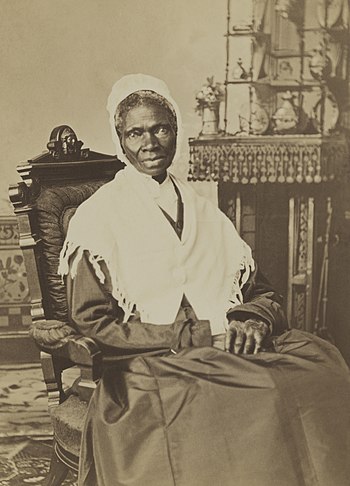
The text below was written by User:Cwmhiraeth, User:Coffeeandcrumbs, and User:Ravenpuff.
Sojourner Truth (c. 1797 – 1883) was an American abolitionist and women's rights activist. Born into slavery in Swartekill, New York, she escaped with her infant daughter to freedom in 1826. After going to court to recover her son in 1828, she became the first black woman to win such a case against a white man. Her original name was Isabella Baumfree; she changed her name to Sojourner Truth when she became a Methodist on Pentecost Sunday, 1843. She chose this name because she heard the Spirit of God calling on her to preach the truth, telling her friends: "The Spirit calls me, and I must go", and left to make her way through the land, preaching about the abolition of slavery. During the Civil War, she helped recruit black troops for the Union Army, and after the war, she tried unsuccessfully to secure land grants from the federal government for former slaves.
This photograph of Truth was taken around 1870, accompanied by the caption "I sell the shadow to support the substance", emphasizing her financial acumen. The image is now in the collection of the National Portrait Gallery.
Photograph credit: Randall Studio; restored by Coffeeandcrumbs
Week of 21 June 2020
Gallery of images from the Seattle Japanese Garden
Your turn
For what are you grateful this month? You are welcome to write a comment on the talk page of this Signpost piece.
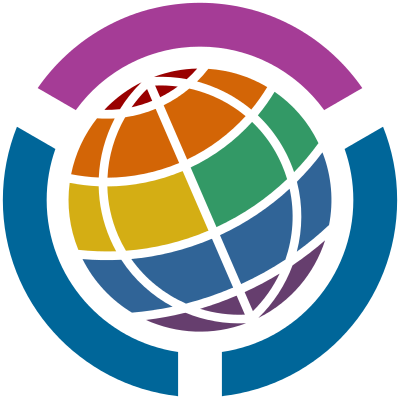
- This article focuses on the history and impact of LGBTIQ+ contributions to Wikimedia projects through the personal experience of one Wikipedian. It also explores the global thematic chapter Wikimedia LGBT+ and the community it builds and supports. The article was originally published by Wikipedia@20 and is licensed (CC BY 4.0)
LGBTIQ+ Wikimedians are a diverse, intersectional group within the Wikimedia community. This article will focus on the history and impact of LGBTIQ+ contributions to Wikimedia projects, international journalism, public health education, and community activism through the personal narrative of one Wikipedian. This article will also explore the global thematic chapter Wikimedia LGBT+ and the community it builds and supports through the Wiki Loves Pride campaign, LGBTIQ+ themed edit-a-thons, and intersectional Wikimedia work. Wikimedia LGBT+ has grown from a handful of Wikipedia editors to a global, multilingual, multiracial community of Wikipedians, librarians, cultural heritage institutions, activists, scientists, open access enthusiasts, human rights supporters, Pride event organizers, and LGBTIQ+ youth and allies due to social media connections. Anyone can follow the group’s current activities through the Wikimedia LGBT+ Twitter account and Facebook page, innovations which have made the movement and its work much more accessible to those just learning about Wikipedia. For LGBTIQ+ people and those searching for LGBTIQ+ information, Wikipedia has proven invaluable in countries where LGBTIQ+ publications, media, or visibility may be criminalized or cut short due to AIDS NGOs leaving those countries. The author of this article will talk about how they got involved with Wikimedia LGBTIQ+, how it has changed over the years, and the impact of these changes for the future of LGBTIQ+-related Wikimedia projects and other LGBTIQ+ initiatives related to activism, community building, and social support.
Introduction
LGBTIQ+ people have engaged in Wikimedia projects from their inception. Over the past twenty years, their contributions have ranged from developing and improving LGBTIQ+-specific content in most language Wikipedias, making LGBTIQ+ people, landmarks, and events visible through the Wiki Loves Pride photo campaign, and implementing guidelines around using appropriate LGBTIQ+ terminology for Wikimedia projects such as Wikipedia and WikiData. More importantly, LGBTIQ+ Wikimedians work hard to build a collegial, inclusive community through partnerships with multiple groups and the use of social media to collaborate and promote each others’ work, and to provide support and action steps for colleagues who may encounter harassment or discrimination in Wikimedia spaces. This work that we do to provide accessible, authoritative, frequently updated LGBTIQ+ information online—and building friendly, inclusive spaces to do this work—is activism, particularly for those individuals working from countries where LGBTIQ+ existence of any kind is under threat.
A recent New York Times article has focused primarily on the negative aspects of Wikimedia work for LGBTIQ+ editors, perpetuating anxiety over hostile environments that exist in Wikipedia.[1] While the hostility that some editors face is very real, it perpetuates a narrative as LGBTIQ+ person as passive victim. The title of the article also implies that Wikipedia is not a social network (Jacobs, 2019). This is far from the complete story of what it means to participate in Wikimedia projects as an LGBTIQ+ person. Veteran LGBTIQ+ Wikipedian Lane Rasberry (User:bluerasberry) asked me to contribute an article to Wikipedia@20 because of my involvement in the movement and the research I have done on the history of LGBTIQ+ engagement in Wikimedia projects. I do not want to plagiarize myself, so I have listed the citations for those works at the end of this article. What I will focus on instead is my personal journey into the Wikimedia community, and my engagement in the movement, while crediting all of the people who have provided support and accomplished great things along the way.
What initially attracted your attention to Wikipedia?
Although Wikipedia launched on January 15, 2001, my memories of retrieving Wikipedia articles in Google searches only begin several years after that. Prior to 2008 I worked as a culinary school librarian, during a time when the most authoritative information about food history and food in culture came from print books, scholarly journal articles, or conference proceedings. At the time, Wikipedia articles about food were just emerging as stubs and starts—they could not replace the traditional scholarly and professional works in that discipline.
During my culinary school years, I also began to freelance writing and editing encyclopedia articles. I learned a great deal about encyclopedia publishing during this time, in particular the dishonesty of some encyclopedia publishers. At the time, some encyclopedia publishers were compiling reference works about notable living people. In STEM and other fields, the most comprehensive, current information you will be able to locate about most of these people are from professional publications or blogs. Some of the most influential researchers and innovators—particularly those who are women, people of color, LGBTIQ+, or from the Global South—do not have books or other encyclopedia entries about them from which to cite. And yet some encyclopedia publishers want their contributors to “fake” a reference list. In other words, they will require a “Further Reading” section to accompany the entry, but the contributor cannot include the true sources of information for that entry—only what “looks” appropriate for high school or undergraduate research.
In 2008 I started a new job as an academic librarian at a four year higher education institution. I taught an undergraduate course called “Research Methods” during my probationary years, where students learned how to locate, evaluate, and cite information from the library and from free online resources. This era marked the decline of encyclopedias and traditional print reference resources in libraries due to the ubiquity of free online resources like Wikipedia. I knew my students were using Wikipedia to do their research simply because it was easy and convenient, but not necessarily because it was better. I created an assignment for my students where they had to locate a traditional encyclopedia entry and a Wikipedia article on their semester research topic, and compare the two for authority, comprehensiveness, citations, validity, and neutrality. In almost every situation, the Wikipedia article on their topic was much more effective in providing background knowledge on their topic than the encyclopedia entry. Development of the Wikipedia article was also transparent and honest, and one could see for themselves the sources of the cited information. People could make an educated decision on whether or not they would use the article based on references, or based on the WikiProject’s quality scale, commentary from Wikipedia contributors, and currency of edits. I began to wonder who all of the people were who worked on Wikipedia articles, where they were, and why they did it.
As Collection Management Librarian and LGBTIQ+ Studies Selector, I focused on the digitization of print books, and realized that almost no award-winning core LGBTIQ+ texts were digitized at the time. I honestly believed that these books would be lost forever and wanted all librarians, LGBTIQ+ authors, and vendors to know! In 2011, I wanted to contribute a chapter to Ephemeral Material: Queering the Archive (Litwin & Kumbier, Library Juice Press) on this topic based on the research I presented at the Acquisitions Institute.[2] I was too late to submit a chapter, but editors Rory Litwin and Alana Kumbier were kind enough to connect me with Library Juice Press’ Gender and Sexuality in Information Studies editor Emily Drabinski, who encouraged me to edit an entire book on LGBTIQ+ digital practices in libraries, archives, and museums. Of course I wanted to have a chapter on LGBTIQ+ Wikipedia and how libraries engaged with that work at the time. Katie Herzog from the Tom of Finland Foundation in Los Angeles reached out to me to co-author the chapter. To anyone’s knowledge, the Tom of Finland Foundation would host the first LGBTIQ+ edit-a-thon in the world—and they would be the first LGBTIQ+ cultural heritage institution to do so as well. Adrienne Wadewitz provided training and support at this event, a testament to her support of LGBTIQ+ Wikipedia work. Katie provided photos of this event, and I thank all of the people who graciously gave permission to have their photos published in the book. Thanks to Katie, I got connected with the LGBTIQ+ Wikipedians’ listserv—we were not yet an official thematic usergroup at the time. I believe that she used this listserv to promote the edit-a-thon, and I used the listserv to reach out for the first time to LGBTIQ+ Wikipedians who might want to contribute to the chapter. This is how I first met Lane Rasberry and Fae, who had both been engaged in the movement since the beginning, intentional about improving LGBTIQ+ content in Wikimedia projects and building the community. I co-wrote the chapter—“Queering Wikipedia”-- with Katie and Lane Rasberry—to document this event and to inform the library community about Wikipedia and provide an example of how one institution collaborated with LGBTIQ+ Wikipedians to improve LGBTIQ+ Wikipedia content AND promote the Tom of Finland Foundation as the source of some images and rare books cited in the entries.
In 2014, I found out about an Art + Feminism edit-a-thon that was happening at the Walker Art Center in Minneapolis. I wish I could remember how I learned about this event, because if an individual had personally invited me I would love to thank them here. I know that this is where I met Margit Wilson, one of the people who brought the Art + Feminism movement to Minnesota. I had no idea at the time that Art + Feminism was intentional in its efforts to recruit female librarians in order to recruit more female identified editors. I just know that I was happy to get an invite and have an opportunity to learn more. I even had a plan for what I wanted to do at the event. I created my first Wikipedia article at that event—an article about Latina lesbian librarian, archivist, historian, and activist Yolanda Retter. This experience led me to edit and create more content, which led to Lane Rasberry giving me information about a Wikipedia North America conference in New York City. That year I organized my first edit-a-thon at the institution where I worked (the first edit-a-thon for them as well) and submitted a conference proposal on female bonding at Wikipedia edit-a-thons (cite here). My proposal was accepted, I had gotten a full scholarship to attend, and that is where I finally met Lane in person, along with Richard Knipel (User:Pharos) and Jason Moore (User:AnotherBeliever), plus other people in the United States engaged in the Wiki Loves Pride campaign and the emerging Wikimedia LGBT+ User Group. All of the people I met were supportive, open to hearing about my Wikipedia experience up to that point, and discussing topics at the conference. The Wikipedia North America conference blew my mind; it was there that I learned how people used Wikipedia for social justice purposes. People like Lane Rasberry used Wikipedia to provide up to date information to people in other countries who had little access to libraries or healthcare professionals about HIV and AIDS prevention. Professors used Wikipedia as a teaching tool for open pedagogy, where they would have students learn about a topic by editing and creating Wikipedia articles about that topic.
After attending that conference, I became an engaged WIkipedian, I continued to organize edit-a-thons in Minnesota, working with Minneapolis Central Library staff Ben Weiss and Margit Wilson, Quatrefoil (Minnesota’s independent LGBTIQ+ lending library), and the Minneapolis Institute of Arts librarians Janice Lurie and Meg Black. I became a state resource for librarians who wished to learn more about Wikipedia or host edit-a-thons, and presented at state and national conferences to educate librarians and archivists about Wikipedia and Wikimedia Commons, and how to use it as a tool to increase visibility of marginalized populations as well as visibility of collections and our state’s contributions to the world. The more I became engaged with Wikimedia projects and communities, however, the more I began to interact with people outside the United States—particularly those who identified with LGBTIQ+ and other marginalized communities. I thank social media for this, as well as my increasing comfort level with communicating through talk pages.
What has changed since then?
On a personal level, I am intentional in my Wikipedia work. When I create new Wikipedia articles, I make notable LGBTIQ+ people visible to a global audience. Whenever possible I will add new content about LGBTIQ+ people of color, LGBTIQ+ people from non-English speaking cultures, because so often these people do not get the credit they deserve. I added gay African-American photographer Alvin Baltrop to Wikipedia because he died a penniless, homeless Vietnam veteran, discriminated against by the rich white gay gallery owners. And yet everyone—especially New Yorkers from the 1970s and 1980s—knows his photos. Alvin Baltrop should always be remembered as one of the greatest photographers of all time, who documented gay history and culture that is only now being made visible in movies and television shows for white mainstream audiences. When I edit existing Wikipedia articles, I often “queer” the content. For example, in the Wikipedia article about St. Patrick’s Day parades, I added a section about the history of LGBTIQ+ discrimination in these parades, and when the Irish LGBTIQ+ groups were allowed to march in the parades. Adding relevant, cited content about how LGBTIQ+ people are impacted by something, or how they influenced something, communicates to the world that LGBTIQ+ people are indeed a part of it. Adding such content to Wikipedia also stimulates discussion in and out of Wikimedia spaces about terminology, intersectionality, and inclusion, challenging binaries and decentering white Christian cisgender heteronormativity.
My intentionality in my Wikipedia work extends to community building. I encourage and invite new editors and up and coming Wikipedians into our circles, just as experienced Wikipedians had done for me. While I do this on a local level through edit-a-thons and conference presentations, I also do it on a global level through Twitter. I also do my best bridge the intersection between librarians and Wikipedians. I am now beginning to ask librarians, archivists, and cultural heritage institution workers what they need to support edit-a-thons. In non-English speaking countries, it is not the norm for libraries, archives, or museums to host edit-a-thons—especially for LGBTIQ+ communities—and I am trying to find out why that is so that LGBTIQ+ libraries, archives, and museums can do better to support their communities. My starting point to this research will be to present on a panel of LGBTIQ+ Wikipedians at an international LGBTIQ+ libraries, archives, and museums conference (ALMS).
On a global level, online communication has improved. In the beginning of Wikipedia’s history, active Wikipedians communicated through Talk pages on Wikipedia. The rise in popularity of social media and video conferencing apps have made it much easier for Wikipedians around the world—LGBTIQ+ Wikipedians in particular—to communicate and collaborate. The advent of social media has made it much easier for Wikipedians around the world to get to know each other, collaborate with individuals or intersectional initiatives, help with translations, and help to locate Creative Commons licensed or public domain images. This has been the greatest boon to LGBTIQ+ Wikimedia activities, making them While attendance at conferences really helps Wikipedians to connect and network, their work can continue beyond traditional conferences. In August 2012, Wikimedia LGBT+ established a Twitter account, and in August 2013 created a Facebook group. Decisions to create new online communication channels often happen during conferences. At Wikimania 2016 in Montreal, Signal and Telegram were added as communication media to be more inclusive of people from countries who might not be able to speak freely about LGBTIQ+ related topics or Wikipedia. In 2019, Wikimedia LGBT+ began making use of Zoom to organize and host monthly online meetings for any LGBTIQ+ Wikipedians who would like to participate. Monthly meetings are scheduled and promoted through the Wikimedia LGBT+ Talk page and the Telegram group. These opportunities have enabled me to increase my engagement and influence within the Wikimedia community.
In 2017 I asked if I could become the Wikimedia LGBT+ Twitter administrator to promote Wiki Loves Pride events and LGBTIQ+ holidays, in addition to connecting LGBTIQ+ Wikipedians with each other. In a short time we went from 73 followers to over 26,000 from around the world. While a significant number of Wikipedians—LGBTIQ+ and allies—from around the world follow us, including national Wikimedia chapters, we also have librarians, open access advocates, tech people, scientists, academics, and LGBTIQ+ youth from around the world. This is significant because LGBTIQ+ youth are always looking for connections to LGBTIQ+ community, and Wikimedia LGBT+ provides a supportive space for them. We share photos of edit-a-thons and other LGBTIQ+ Wikimedia events that take place around the world, as well as retweet photos of Wikimedia events that take place in the Global South and regions just starting to develop Wikipedia community. The Twitter account also allows LGBTIQ+ Wikipedians to collaborate with WikiWomen in Red, AfroCROWD, and any other organization engaged in intersectional Wikipedia activities. My slogan “Edit loud and edit proud!” is often retweeted and used in promotional materials for LGBTIQ+ edit-a-thons. With permission, I will give “shout outs” to those LGBTIQ+ Wikimedians who do phenomenal work. There are still people out there who do not grasp that real humans do this work, and that those doing some of the best and bravest work right now are under 30.
Over the past 20 years, Wikimedia LGBT+ members have provided leadership in governance and policymaking in all Wikimedia Foundation endeavors. They have played a major role in the development of codes of conduct and community guidelines, as well as educating Wikimedians about LGBTIQ+ terminology and how to write about LGBTIQ+ issues and people. Wikimedia LGBT+ has done a great deal to remind people in the movement never to take Internet privacy for granted, and have had a few frank internal conversations about the successes and challenges of Wiki Loves Pride photo campaigns in different parts of the world. I believe that, as our global thematic chapter grows, and becomes more representative of the global population, we will continue to have these frank conversations and take better care of each other in solidarity.
The media is making people more aware of the global communities that engage in Wikimedia projects related to marginalized populations. Instead of highlighting the good that these communities do, however, the media often paints our communities as victims of harassment and discrimination in the Wikimedia spaces that we occupy. It is true that there are people involved in Wikimedia projects who are trolls, bullies, stalkers, and harassers, and it is true that these people cause harm. At the same time, the journalists who cover Wikipedia do not talk about how fellow editors and the Wikimedia Foundation combat this inappropriate, criminal behavior—even though the people who they interview talk to them at length about these efforts.
Wikimedia LGBT+ does a great deal to support and defends its own. When an LGBTIQ+ article is identified for deletion, or if we know that someone in our community is being treated inappropriately, communication takes place immediately through our online channels and several of us will either defend the article, a person, or both. This approach often is sufficient to halt the bad behavior. If the negative behavior continues, then we can report it to the Wikimedia Foundation Trust and Safety Team, who will contact the offending individual to communicate with them about their behavior and how it is not in line with community guidelines. Depending on the severity of the offense and whether or not the individual apologizes and promises to improve, the offending individual may be banned from one or more Wikimedia spaces. As the Wikimedia Foundation must communicate with people from around the world, sometimes the communication they have with offenders has the potential not only to re-educate an individual, but to have the individual go back to their local or national Wikimedia communities to discuss and rethink how they build and maintain inclusive, collegial online spaces in their home countries.
Established in 2012, The Wikimedia Foundation Trust and Safety Team is housed in the Wikimedia Foundation’s Community Engagement Department, and “identifies, builds, and—as appropriate—staffs processes which keep our users safe…to proactively mitigate risk as well as manage the overall safety of our online and offline communities when incidents happen”.[3] The Trust and Safety Team “aim[s] to provide compassionate, credible, and comprehensive…services to the Foundation and to the volunteer communities and affiliates it supports…”.[3] In 2017 at Wikimania in Montreal, I met Christel Steigenberger of the Wikimedia Trust and Safety Team and discussed my concerns about safety of my LGBTIQ+ Wikimedia comrades after hearing about their experiences. She invited me to serve on the Trust and Safety Team Advisory Committee so that we could discuss some of these challenges in more detail and figure out some solutions. At this time, different Wikimedia communities are working on community guidelines and codes of conduct that spell out appropriate behavior in online spaces, as well as define harassment, stalking, vandalism, discrimination, etc.., and the action steps that will be taken if someone causes harm in a Wikimedia space. Since 2017 I helped develop Codes of Conduct and have educated people about the strategies and processes they need to follow if they are mistreated in an online Wikimedia space. While it is possible that the number of incident reports are increasing, it may be due to increased awareness of the avenues for support, rather than a true increase in harmful actions against others in Wikimedia spaces.
What do these changes portend for the future of Wikipedia, online community, and beyond?
I am nervous about the future, to be honest. Governments around the world, employers, and schools believe that they have the right to monitor what we do online. They justify the monitoring of peoples’ online behavior as protecting peoples’ safety. Keeping people ignorant is not keeping them safe. Some national governments block Wikipedia completely, which is disastrous for people in remote areas with no access to libraries or no access to LGBTIQ+ information. Other governments monitor peoples’ Wikipedia activity, and have had representatives threaten or arrest Wikipedians who have added content in their languages that may not be “the party line”. It is no secret that, since 2016, more countries are voting for right wing fascist leaders who want to keep people divided and afraid by keeping them ignorant and encouraging people to report on each other for small infractions. This reality will lead to more work for the Wikimedia Foundation’s Trust and Safety Team, and more serious conversations about how to maintain a free, open, inclusive global online resource where everyone can participate in an equitable capacity.
An imbalance still exists in national and linguistic representation in Wikimedia leadership. This impacts the future of global LGBTIQ+ Wikimedia efforts because people from less LGBTIQ+-friendly countries need to learn about LGBTIQ+ issues and how they can advise people in their countries on how they can provide safety for LGBTIQ+ and other marginalized populations who do Wikimedia work. These discussions often take place predominantly among people from English speaking and European countries, and the result is that plans and strategies are developed that people from these countries can easily achieve, while our comrades from other countries may not even know how to enter the conversation, or feel shut out of it. This is why people are working harder now to make sure that there is global representation on Wikimedia Foundation boards and other governing bodies of influence.
I would like to believe that active Wikimedians, LGBTIQ+ and otherwise, are global information activists. We share news updates with each other, we make people aware of notable people from around the world, and we discuss some controversial topics in order to model to the world how to express them in academic or journalistic writing. We make well-researched LGBTIQ+ information available to people in parts of the world where it might not exist in their language, or may be forbidden to exist period. In conjunction with EuroPride or other international events, LGBTIQ+ Wikipedians are beginning to come together for multi-day edit-a-thons to network and create new or improved LGBTIQ+ content in multiple languages. They may not be able to do this work safely from their home country or their personal or work computer. In 2019 the largest LGBTIQ+ edit-a-thon took place in Tunis, in conjunction with a multi-day queer film festival, both supported by an LGBTIQ+ supportive NGO. LGBTIQ+ people in Tunisia still have no legal protections, and we cannot take these efforts for granted or allow their volunteers to go unsupported or unprotected. As more people within the Wikimedia movement become connected and meet each other, the better advocacy and support that we can provide not only for our more vulnerable comrades in the movement, but for big picture issues such as open global information access and human rights protections. We are thinking globally while acting locally, and Wikipedia still has great potential to provide a successful, sustainable model of global cooperation—even if it is just in the area of global LGBTIQ+ activism.
For more information about the history of LGBTIQ+ Wikipedia engagement, please read the following:
Wexelbaum, Rachel, Katie Herzog, and Lane Rasberry. “Queering Wikipedia”. In R. Wexelbaum (Ed.) Queers Online: LGBT Digital Practices in Libraries, Archives, and Museums, Sacramento, CA: Library Juice Press, 2015, pp. 61-80. https://repository.stcloudstate.edu/lrs_facpubs/49
Wexelbaum, Rachel. “Coming Out of the Closet: Librarian Advocacy to Advance LGBTQ+ Wikipedia Engagement.” In B. Mehra (Ed.) LGBTQ+ Librarianship in the 21st Century, Advances in Librarianship Vol. 45, Bingley, England: Emerald Publishing Limited, 2019, pp. 115-142.
References
- ^ Jacobs, Julia. “Wikipedia Isn’t Officially a Social Network. But the Harassment Can Get Ugly.” The New York Times, April 8, 2019. https://www.nytimes.com/2019/04/08/us/wikipedia-harassment-wikimedia-foundation.html
- ^ Wexelbaum, Rachel. “Maintaining an LGBT Studies Collection in an Academic Library.” [PowerPoint presentation]. Presentation given at the Acquisitions Institute, Timberline Lodge, Mount Hood, Oregon, May 2011. https://acquisitionsinstitute.org/2011-program/
- ^ a b “Trust and Safety Team.” Wikimedia Foundation, 2019. https://meta.wikimedia.org/wiki/Trust_and_Safety
The global reckoning over racial justice arising from the homicide of George Floyd while he was in police custody on May 25 has prompted many Wikipedians to turn inward, asking how we as a group ought to respond to the upheavals and protests stemming from this event. Racial bias on Wikipedia, arising in part from the under-representation of black editors, has long been regarded as a major issue facing the project, but the community has also traditionally had an uneasy relationship with activism, which can easily lead to violations of the esteemed neutral point of view policy if not kept in check.
This tension was on display this past month as the community firmly rejected proposals to black out Wikipedia (as was done in 2012 in opposition to SOPA) or create a Black Lives Matter-focused Main Page. Instead, efforts turned toward improving Wikipedia's content related to the movement, resulting in the creation of WikiProject Black Lives Matter.
As of press time, the project has 44 listed participants, 58 threads on its talk page with 55 participants, and 411 articles tagged for improvement in the project's scope. Discussions have addressed Wikipedia's burgeoning coverage of recent events, as well as articles on broader topics like police brutality and racial bias on Wikipedia outside of pages in the project's direct scope. The Signpost interviewed three participants who responded to an open invitation on the project's talk page; Another Believer, Smirkybec, and Phoebe. Here are our questions and their answers.
Why did you decide to launch/get involved with this WikiProject? If you are comfortable sharing, to what extent have you been involved with Black Lives Matter off-wiki?
- Another Believer: I created the WikiProject because I wanted to create a space where editors could work together to improve Wikipedia's coverage of the Black Lives Matter movement and related topics. There are existing projects focused on black culture and history (AfroCrowd, Black Lunch Table, Black WikiHistory Month, WikiProject African diaspora, WikiProject Civil Rights Movement, etc.) but I saw no harm in having a focused project tackle topics like police brutality, racial justice, and social justice reform. I think the current political climate and recent news coverage has forced people to confront these issues, and we have a responsibility to make Wikipedia helpful for those who are seeking answers to questions.
- Smirkybec: Like most countries across the world at the moment, Ireland has seen demonstrations, protests and a lot of public debate (and backlash) in response to the killing of George Floyd. As is normal, I started seeing a lot of social media posts and articles listing Irish organisations, authors, artists, musicians and activists that were being highlighted as voices and groups to support in an Irish context. I was very surprised to find many, if not all, of the people and groups being talked about had little or no Wikipedia presence. I quickly decided to devote my Wiki editing for the foreseeable future to working on these topics and biographies and adding them to WikiProject BLM. Due to the pandemic restrictions in Ireland, unfortunately I have not been involved in the BLM protests in Dublin.
- Phoebe: I wanted to help organize the energy and momentum that we are seeing around topics related to Black Lives Matter right now; as user:Another Believer notes, there are several long-term projects about these and related topics, but there is no time like the present to make a push to really make our coverage as high-quality as it can possibly be.
How would you assess the state of BLM content on Wikipedia right now?
- Smirkybec: From an Irish perspective, there is a huge amount of work to be done on both historic and contemporary topics. I would say that depending on the context you come from, BLM content may well be non-existent.
- Phoebe: I see decent coverage of people and major events, tragedies and protests that have hit the news, but there is a lot of work to do both on lesser-known events and people, and on articles about underlying and systemic topics (like police brutality in the United States) and related laws -- these are difficult editing tasks, but important. And, there is a lot to do in non-English Wikipedias and Wikidata too.
You are organizing an editathon for June. What major tasks are you planning on taking on?
- Another Believer: As the primary author of George Floyd protests in Portland, Oregon, I plan to continue updating this entry and uploading my photographs of local demonstrations to Wikimedia Commons. I've also been focused on the lists of George Floyd protests and helping to fork out content appropriately. I write about public art often, so I'd like to expand the articles about recently removed monuments and memorials.
- Smirkybec: I plan on writing about as many BIPOC from or in Ireland, and if I can't write full biographies, I plan on diversifying as many relevant articles relating to Ireland and their experiences. This will probably focus on the experiences of migrants, refugees and asylum seekers in Ireland (as the BLM protests have) as well other forms of discrimination and racism in Ireland towards groups such as the Travelling community.
- Phoebe: Like Another Believer, I've been working on the various 'list of George Floyd protests' articles -- there is a lot to do, we can't keep up with the news (and as with so many breaking news topics, Wikipedia is one of the few compendia of information right now). I'd like to spend some time working on core articles and getting them towards GA/FA. I also helped out with this very successful global editathon organized by user:Jesswade88 and others - it was inspirational to get 200 people, including many brand-new to Wikipedia, sign up because they wanted to work on biographies of Black scientists and more.
How would you respond to editors who might argue that the existence of this project violates WP:NPOV in some way?
- Another Believer: We're seeking to improve Wikipedia in compliance with the site's goals and guidelines. What's wrong with this?
- Smirkybec: All of the work that I (and editors I collaborate with) is to improve Wikipedia while working within its guidelines and guiding principles. Wikipedia is a mirror on the world, and should reflect the full diversity of the world and the experiences of Wikipedia readers in 2020.
- Phoebe: The protests that we are seeing right now around the death of George Floyd are historic -- one of the biggest protest movements to ever happen in the US and globally -- and the Black Lives Matter movement before and since is also crucial to our modern history. On Wikipedia, we document what happens in the world: period.
A proposal to black out Wikipedia in support of Black Lives Matter was closed with clear consensus against, in part because of concerns that it could threaten Wikipedia's reputation for neutrality. But we also had Wikimedia CEO Katherine Maher co-write a blog post endorsing the movement. To what extent is it the role of Wikipedia or Wikimedia to take a stance on this issue?
- Phoebe: Wikimedia and Wikipedia are different. Wikipedia is a global encyclopedia project; Wikimedia is a technology non-profit that runs one of the most-accessed websites in the world. To that end, I do think the Wikimedia Foundation has a responsibility in its role as a technology company, employer, leading non-profit and advocate for free culture to take a stand advocating for justice and equality. For Wikipedia, while I wish we used the immense power of our platform more often to advocate for these values, I do understand the argument that the encyclopedia doesn't take a stand (while also recognizing that the entire concept of free knowledge for everyone in their own language is not a historically neutral one).
The media has struggled to balance coverage of the more peaceful aspects of the protest with the more sensational rioting that has in some cases come along with it. Is "if it bleeds, it leads" a problem on Wikipedia, too, and if so, how should it be addressed?
- Smirkybec: Unfortunately most editors are not in a position to guide the narrative of the press or media outlets! All we can do is our own due diligence, looking for reliable sources outside of the most prominent voices to find that nuance and less sensational coverage that will ultimately generate better Wikipedia articles on content.
- Pheobe: As an editor on the protest articles, one thing I'm struggling with is that media coverage - and hence, the reliable sources that we need to use - is not focused on the protests after the initial sensationalist coverage of looting. In many US cities, we are seeing the 12th straight day of protests now, but that is not as intensively covered. I heard from a friend in Florida that she was at a major protest there with no media coverage at all. This is a real issue for Wikipedia's reporting, given our reliance on media reports.
Do you think this project will last after protesting dies down and less attention is focused on this matter, if it does?
- Another Believer: Maybe, but what's wrong with a WikiProject coming to end? Even if the WikiProject has a short lifespan, this space is serving a specific purpose at this time, and that's good enough for me. I would not be offended if the project were folded into another, or archived altogether. But, I'll be optimistic and hope the project sticks around for a long time.
- Smirkybec: Like all things driven by a community, there are ebbs and flows. Sometimes a group will work together for a finite period to work towards a common goal, but it may be that the WikiProject will go through peaks and troughs of engagement. In my experience most WikiProjects go through these kinds of cycles.
- Phoebe: I hope so. The topics, particularly as I mentioned the underlying "root cause" topics, will certainly not cease to be relevant after this news cycle ends. I can see this project being folded into a larger project (like the African Diaspora WikiProject) at some point, but the need to cover these topics well will not end.
Anything else you'd like to add?
- Another Believer: Black Lives Matter. Also, thanks to WikiProject members and other editors who are working to improve coverage of this movement and related topics. The subject matter may be difficult at times, but I have no doubt about the importance of this work.
- Smirkybec: It may feel US-centric to many international Wikipedians, but I have no doubt that most of us will find important conversations about racism and discrimination will be taking place in our own communities and those should be reflected in the content on Wikipedia. We owe it to our countries, localities, and communities to draw out those narratives and represent them to the rest of the world.
- Phoebe: One thing that we rarely talk about on Wikipedia is that our editor base is not particularly diverse. We've spent many years talking about the lack of women editors, but our lack of editors who identify as people of color is also a huge gap in our editor base, and is something that I would like to see both research into and a concerted effort to correct. That includes both focusing on topics of relevance and interest to folks, but also doing specific concerted outreach to specific communities, as AfroCROWD and Black Lunch Table have been doing for several years. We need to talk about the whiteness of Wikipedia and how this may be systematically biasing our coverage and content, while we also work to improve articles related to the civil rights movement, Black Lives Matter, and BIPOC individuals as much as we can. And - if you want to get involved, everyone is welcome to join the project and work on these articles!




